

Strangely, this specific attack had been anticipated somehow, long ago but now forgotten. In the re-discovery of this fact, something even more ancient and extremely controversial, something more like a sigh too deep for human words, or a silent cry from things far older than the Pyramids and the Sphinx, was to be dredged up from the actual depths of the sea. Too bad Bruno wasn’t around to observe things in this part of the world. Where are the Brunos when they are truly needed?
Wild birds--particularly the raven-like, red-billed, red-legged chough--were congregating and moving restlessly about, on land, and doing very little flying.
The largest groupings of the land birds were at Land's End and the Scilly Isles, and tourists remarked about it to their tour guides, it was so conspicuous, but the guides did not know what to make of it.
Word spread beyond Cornwall, probably carried by these same tourists. Bird watchers from all over the British Isles poured in. After them followed helicopter telly crews, who buzzed small Cornish communities and scared the quiet living souls in them half to death.
Televised interviews of experts proved inevitable as well, and authorities in ornithology popped up on shows dealing with the phenomenon. Each authority produced a pet theory why landbirds would flock to the seacoast--though one simply denied that anything out of the ordinary was happening.
"How do we know they are congregating?" remarked Dr. Douglas MacPherson the Oxford don and high-brow skeptic to the interviewer. "No official counts of birds and bird groupings has come in from reputable sources, and until then we cannot say they are congregating or engaging in any communal grouping."
Since the audience had just been shown recent clips of the mass groupings of birds along the coast, the interviewer could not let him get away with it.
"How can you, Dr. MacPherson, deny what we can see with our own eyes? It is preposterous to assert the birds are not gathering together in unnatural numbers, for what reason we can only speculate?"
The expert was nonplused and smiled indulgently.
"But we know that any two people will see the same thing entirely two different ways! What is unnatural to one person is probably quite natural to another. For example, you look out there and see 'gatherings of unnatural numbers' of birds, but I--who haven't your vision--see nothing out of the ordinary. Birds have flocked together before in large numbers, and it means nothing really. So, my conclusion is that what a trained observer as myself sees is a random distribution that happens to coincide with other random distributions. There is, as yet, no verifiable grouping! And as for a newscaster's silly report that they are all turning white, albinism, I would remind you, is a perfectly natural occurence, though I would dispute anyone who suggested that large numbers are involved, since that is a scientific impossibility, most highly improbable!"
The telly audience wouldn’t swallow MacPherson and hooted him off the platform, but not before he shot back, “Photographs are notorious for lending themselves to varying subjective interpretations. Any sane person will agree to that, so why all this fuss about the birds. What some people think they see simply isn’t happening!”
But it was happening, the obstinate MacPherson notwithstanding.
Debate raged heavy on the topic all over Cornwall and Britain. What fueled the confusion was that no one knew exactly what it was and why it was going on. After all, choughs hated the open sea. None had ever before been sighted on the beaches and headlands of Cornwall. Of all Cornwall’s land birds, this one held most tenaciously to the soil--giving it a heraldic and patriotic significance to the Cornish.
Suddenly, in the midst of the furor, the birds were gone.
They had, evidently, all flown off in the night, in tens of thousands.
No one could guess how they all could decide to leave at the same time--getting the word 'round robin' so that they would be gone by six in the morning.
However it was accomplished, the flocks vanished.
The great, sudden disappearance of Cornwall’s land birds stirred up a far greater storm than their huddling in large, nervous groups.
Soon reports came from the Scilly Islands off the coast of Land's End, Cornwall. People reported hearing multitudes of birds passing over in the night.
Then days went by while people anxiously and curiously awaited word.
What had happened to all the choughs of Cornwall?
The dismal answer began washing in on the tides of the second week: the beaches of Ireland, Wales and Cornwall as far as Cowes became littered with dead choughs--their non-swimming habits having proved fatal. Most strange of all, perhaps, was the fact most all were stark white--their feathers having somehow been bleached of their natural black colour.
Helicopters flew back to terrorize Cornish villages and towns. More ornithological interviews took place on high-level talk shows with MacPherson conspicuously absent, while audiences watched and engaged in heated pro and con. But beneath the hoopla of the media Cornwall was appalled to the teeth; the homely chough was as much a part of the Cornish landscape as St. Ives or Land's End. The mass suicide at sea--for such it appeared--provoked considerable, deep soul-searching. Attuned to the rhythms of the sea on which Cornwall had depended for centuries for its livelihood, the Cornish suffered a curious dichotomy of betrayal and outrage. "We've done something wicked and mean and our birds done forsook us!" was quickly followed by "What foul thing has done this to our birds?" Guilt, in other words, was countered with righteous anger. This was an impossible situation for any people to endure for very long. They had to find out the cause, either in themselves or in some hostile outside force.
Then an odd little poem appeared anonymously in a number of local papers, and many people read it and thought well enough of it to pass the word on. The poem quickly spread, since it was pithy and easily learned.
"I'll not rest in this wet cairn, till all the choughs homeward turn."
The two verses about Sir Tristam and Lyonnesse, though not very good poetry, swept Cornwall into a frenzy. Everybody was talking about Lyonnesse, which had been a dead subject for years, snickered at by tourists if a tour guide should be so bold as to bring it up. Now that the Cornish chough had come to a spectacular end, somewhere in the heart of sunken Lyonnesse, the legend revived with a vengeance. Local clubs of Lyonnesse zealots organized throughout Cornwall, competing with the popular annual Gorsedd harvest rites for public attendance.
Many people connected the Lyonnesse legend with Cornish claims to be a separate culture and country in its own right.
"You need to remember you are NOT in England," tourists were reminded by the bolder tourist guides whenever people made the common mistake of assuming it was. "We Cornish were here long before either the Romans or the Anglo-Saxons thought up England."
Thinking to use the controversy to increase its rating, a London station flew a chopper to Mount St. Michael, which was reputed to be part of the original Lyonnesse, and was known to the Carthaginians as the tin-rich Iktis, tin being the uranium ore of the day since it was essential to manufacture of the best bronze weaponry.
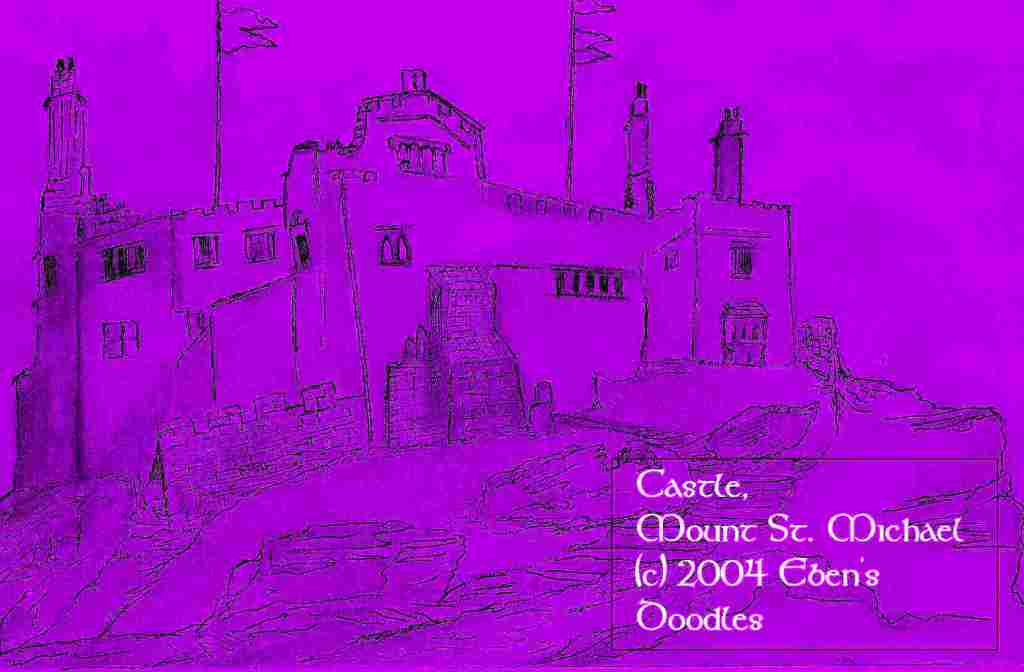
The ploy worked. Lord St. Aubyn waved a white table napkin on a pole as they circled the Mount, utterly destroying all the domestic egg laying in the region for the next two weeks.
The chopper landed and the crew hurried to catch the lord before he changed his mind and shut the castle gate on them.
Now the towered gate had long since vanished, but the huge portal doors were thick enough to keep out even this determined a group.
Tall, severe, dignified, Sir Francis Cecil St. Aubyn (variously spelled Aubin, Aubynne, Aubinne, Auben), third Baron St. Levan, Lord St. Levan, looked seventyish but in good health, with ruddy cheeks and a frosty gaze that could stop a charging, steel helmeted, treasury death tax assessor at fifty yards.
But the interviewer, thirtyish but still looking twentyish Marco Viselgraphi of BBC’s “nature discovery series,” had considerable experience and felt equipped to deal even with aging nobility who had in 1940 fought in the decisive Battle of Britain, as Lord St. Aubyn had as a RAF Spitfire squadron commander.
"Sir," began Viselgraphi, holding up the mike as his cameraman zeroed in, "we are fortunate to see you out on the grounds enjoying your well-deserved retirement among your lovely, prize-winning exhibition roses, particularly today, when people everywhere are asking this one question: what made the birds of Cornwall take a dip in the Atlantic? Was it to avoid the Cornish separatist movement, as some other people are saying in London?"
Lord St. Aubyn had decided to treat, instead of retreat, as he stood knee-deep in scrubby heather, not exactly hybrid tea roses fit for the Chelsea Flower Show. He thought he might defuse their attacks on his peace of mind with kindness instead of reclusive intransigence.
So he smiled on the professional young fool, showing some extensive bridgework where he had caught flak in the war. "An excellent question, dear boy! But allow me to think. It is a very complex issue, as you can appreciate in your line--your line of--now, yes, I have a definite opinion on the matter, now that I think about it, and--" He paused dramatically, as if something profound has just occurred to him in the course of six or seven decades. "But, gentlemen, my opinion can wait. I mustn’t let this splendid opportunity pass. Allow me to show you around the castle, keep, and grounds. Why, these doors frames, for example, are prime examples of 13th Century work by Breton stone masons. How do we know that? Look here, dear boy. Can you see the way the grain of the stone is cut transversely and not conversely? Well, that is remarkable proof of T.S. Eliot’s Concomitant Fallacy operating, since stone was being treated as wood, and, moreover--"
Meanwhile, “dear boy” Viselgraphi reacted to the chummy arm thrown around his shoulder and the tooth-rattling chuck under the chin. While disengaging from the friendly lord, he had been making desperate signs to his cameraman, pilot and whoever else was with him. Together, they were backing toward the chopper. Suddenly, they turned and jumped in, and Lord St. Aubyn cheerily waved as they passed overhead, heading straight back to London with considerable clumps of heather caught in the aircraft’s wheels.
Retrieving the table napkin, the chuckling, old man, shaking his head, went in, the business taken care of satisfactorily as far as he could determine. “Just the mention of that dreary old windbag Eliot sends them packing every time!” he thought. He really doubted they'd be back for more Eliot, however much the controversy heated up.
Never really conquered, Mount St. Michael had seen few white flags.
Above the castle fluttered, as always, the St. Aubyn family crest and flag which featured the ancient Cornish chough, insigne which were also preserved in the castle's Chevy Chase Room.
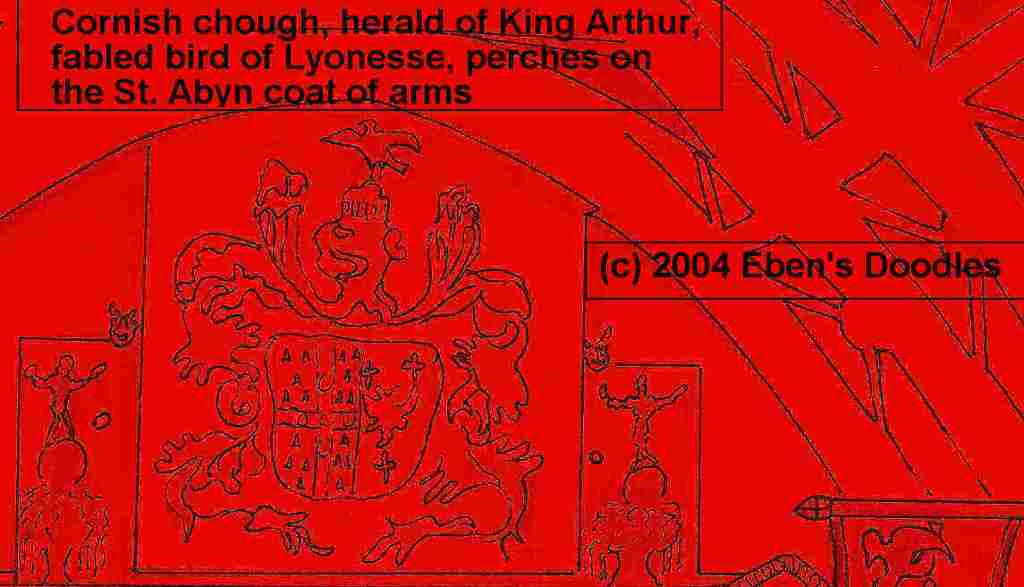
Yet times had changed. Try as they may, it couldn’t be helped.
"Shouldn't we remove it from the flag and crest?" his practical wife asked him one day as she strapped a tiny, jeweled dictionary to her wrist. "After all, the choughs have all turned white feathered and gone--poor little dears! As long as we've got one on the flag, it’ll remind me."
The lord was not so willing to change as the lady of the Mount. The chough, non-existent or not, would stay and fly, on cloth at least, above Mount St. Michael as long as there were St. Aubyns holding down the fort and castle and able and willing to draw a ready sword (unless he turned the castle and island over to the National Trust to elude the deadly amd ruinous Death Tax.
Lord St. Aubyn must have been smiling, for his wife remarked about it as she was searching her paper for an unmarked crossword.
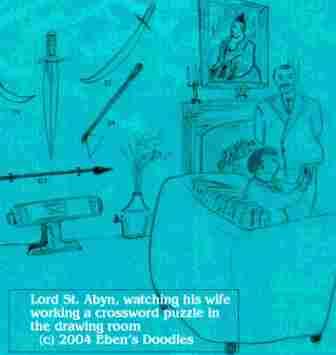
"No, it's not a joke," he replied. "I'm just awfully glad those telly people didn't ask about Atlantis. Lyonnesse was bad enough. I might have said something very foolish if they had pressed me, and then the whole world would have seen me put on the jester’s cap!"
"Oh?" said his wife as she glanced up from her baffling crossword. "What foolish thing might you have said to them, dear? Tell me, I want to laugh at something."
The lord of St. Michael's Mount sighed and scratched behind an ear. "Well, the truth is, Clemmie, a young fellow from Stratford said it best: 'There are more things in heaven and earth than are dreamt of in your philosophy, Horatio!’ I first came close to the meaning of that when I was flying in the Battle of Britain, you know, when I felt--felt those--"
His wife darted a look at him. "Is that so foolish? After all, Bill said it, and I should imagine everybody knows who he is!"
The lord's face suddenly turned grim, putting aside the still vibrant memory of how invisible wings had seemingly supported his crippled craft until he was landed back at the air station, wings that had taken him out of the way a bit, too, granting him a top secret view of certain events off Chesil Banks--events that afterwards nobody in government, American or British, would divulge to the public, since it was obviously so out of the course of human understanding, so obviously supernatural. Naturally, all evidence was destroyed on the spot as soon as possible, and who could expect the Nazis to shame themselves before the whole world by admitting to it if the British weren’t going to spill the beans?
It was probable mysteries like the ones that had literally put wings on his fatally disabled craft and given him a Field Marshall’s tour of the Western Front in 1940 were not going to occur in quite that magnitude again, to his experience, at any rate. Yet this choughs' vanishing act--would it equal the events of 1940, or blow away like harmless smoke? Time would tell. Yet he knew these things usually occurred in groups--like swelling storm waves which hid the infamous Ninth, the really big one, somewhere in the series, and unless you could see clearly enough to count you never knew which it was until your Nemesis hit.
"But do the mainlanders really believe it?” he reflected aloud. “I would wager a million pounds none of them do! Young people today seem to have their minds set in tight, little, correct boxes. That's why this disappearing of the choughs has kicked up such an infernal fuss! It doesn't fit any of their little boxes. They can't explain it in their philosophy--explain it away, that is--so they come and hound people like us after making all the experts and authorities look utter fools!"
Lady St. Aubyn went back to working her puzzle. She sighed after checking in her dictionary and looked up at her husband pleadingly.
“‘British Archaeologist who discovered King Tut’s tomb in the Valley of the Kings; also common term for wagon-master’? Now who on earth would that be, dear? Davis comes to mind, but, no, he was the poor old fellow they said disappeared, gobbled up by a wild crocodile or something nasty of that sort down there. I don’t believe he’s the one they want.”
The lord of the castle, who had crossed paths with the world-renowned archaeologist at various London club and state dinners given in the man’s honor before the war, returned her a piercing look.
“Try C-A-R-T-E-R.”
The lady of the castle set immediately to work. She began to cover the puzzle with a sudden flurry of entries.
A moment later his wife looked up at him with triumph.
“Splendid! ‘Carter’ fits perfectly, and, what’s more, it gives me ’Atlantis,’ ‘rob,’ ‘thief,’ ‘killer’ and ‘fire.’ My, a regular windfall! You’ve made my day, darling!“
But her delight met only a grim, distracted expression.
She sighed and set down her puzzle.
"Oh, you’ve worked yourself up again, dear. But try to think about pleasant, little things, as I do. Leave larger affairs to take care of themselves. Your heart, you know. As for the cloughs, I feel things will work out in the end. They always do."
The undaunted old Spitfire glanced at her, felt a particularly tremendous gust rattle the tall windows, and shook his head--the same that had faced down overwhelming Nazi might at 10,000 feet and, in a tight spot, found, to his lifelong amazement, an Unseen Agency intervening when technology and first-class training were not going to be quite enough. The castle, he knew, would hold to its perch on the two hundred foot high crags of the Mount, but would the Cornish and English kingdom? And what about the world?
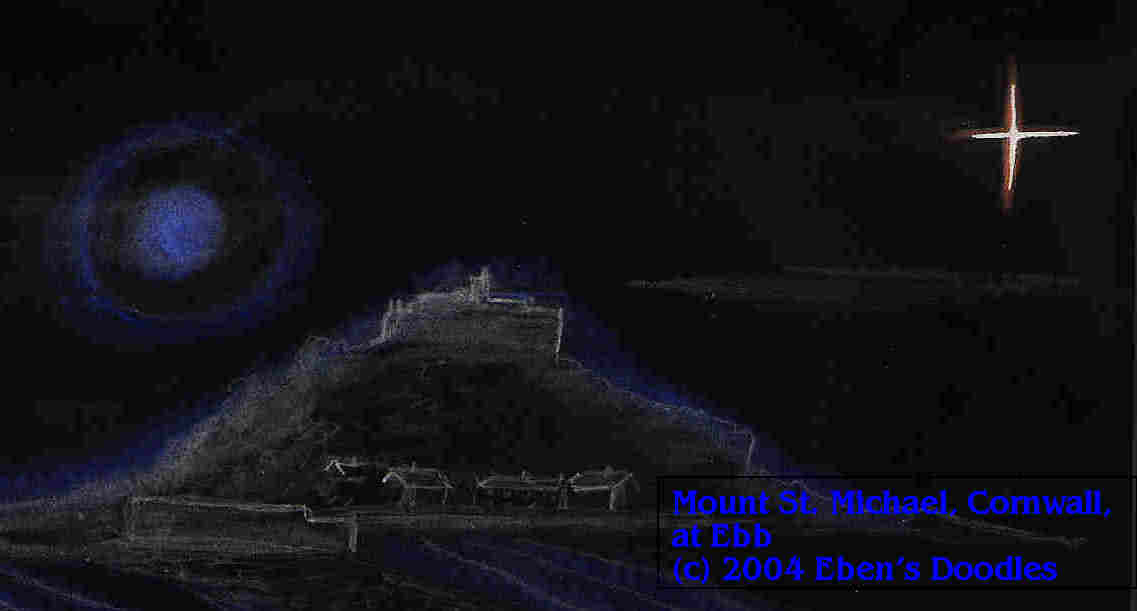

The lady dropped all thought of her promising crossword and stared at him.
"What are you taking about? Inscription?"
Lord St. Aubyn sighed a spouse's sigh, and not too obviously, since he knew his own memory was faltering a bit lately.
"Remember? You covered it when you had some painting and refurbishing work done in the Chevy Chase Room--but I copied it down. I put it away somewhere for safe keeping."
The lady laughed. "Now we'll never find it!"
Lord St. Aubyn thought hard for a moment, then went to a small, ornate clock on the fireplace mantel, lifted it and withdrew a slip of paper with a look of Cat with canary in mouth.
"You see, Clemmie, I haven't quite lost all my memory!"
"Oh, stuff and nonsense, read it for heaven's sake!"
Lord St Aubyn slipped reading glasses from his pocket, perched them on the end of his nose, then peered as he slowly translated from the Old Cornish:
to Lyonnesse he up and flies,
Cornwall's Sun, he sinks and dies.
"Oh dear, I don't like the sound of that," observed the lady, seizing her crossword puzzle so hard it crumpled in her hand. "I don't like the sound of it at all! Now I remember why I covered it up. Please stick it away. I don't want to hear about it again!"
Lord St. Aubyn, seeing it was a proper time to make lords of the castle scarce, went for a pipe from a collection he stationed next to a crock of vintage Mousehole hard cider in the dungeon--converted into a wine cellar and over-flow pantry. The cider was warming the old ticker and the meerschaum was drawing splendidly on a select brand of imported Jamaican, “High Wind,” when he came back and found his spouse trying something easier on her nerves, a crossword circle puzzle. His silver-gray Weimaraner had joined her “golden-blush” Shih Tzu on the carpet by her overstuffed chair and looked snug, curled up together, as two titmice in a yarn basket.
She turned to him after he had enjoyed a good smoke, sitting with his uncrumpled portion of the Times, the weighty financial and political opinion sections.
Her eyes squinted as they always did when she needed advice with something rather difficult she knew she could very well do herself without help but, from feminine modesty, could not concede her fairer sex.
“Pugsie, dear boy, just one little question. I promise!”
Lord St. Aubyn sighed behind his paper. Whenever she deployed his moniker, he knew what was coming, and hated word circle puzzles, particularly the esoteric and philosophical sort churned out by Lady Arkenstone, whose books were bound in gilt by his wife and occupied whole shelves in HIS library.
“She’s gone off aery and theosophical again, I fear,” acknowledged Lady St. Aubyn. “I wish she would just stick to the real world, but I can’t put her down at this stage. I’ve done her all these years so faithfully, and friends should stick by old friends, right?”
“‘Pugsie boy” cleared his throat.
“Well, this one has got to be very perspicacious, as they say. It’s definitely perspicacious. I don’t know how she does it at her age, I really don’t! I believe she’s predicting the end of the world!”
Becoming a bit annoyed, Lord St. Aubyn lowered his paper completely. “Well?”
The lady did something unexpected for her. She rose up, upsetting the dogs, and thrust Lady Arkenstone’s latest circle puzzle in his startled face.
Without his glasses, he could see only blurs of letters and words she had circled, so he brought out his bifocals and took a better look.
Taking the puzzle book, he read his wife’s circled letters, then referred to Lady Arkenstone’s “Helpful Hints” page, and finally stole a look at the completed puzzle given in the back of the booklet.
He handed it back.
Standing, holding the book and squeezing it a little too hard, Lady St. Aubyn eyed him with a gleam of impatience. “Well, what do you think of it?”
The old Spitfire squadcom came to the fore in the time of emergency. “Well, dear, dear Clemmie, I can’t take issue with the woman at this date. We really are in a bad spot if it is so as she says. But we must go forward with the stout-hearted boys and girls we can possibly muster. That is the only way to face the lion and the wolf. We must put our best effort into it, and if necessary all the way to the wall with these ‘DUBESOR’ champions and letterman, as she calls them, what?”
The lady, who kept her old Girl Home Guard uniform in a place of honor in her wardrobe holding the jeweled gowns she almost never wore, stared at him for a moment, her fine eyes unsquinted and taking in his whole meaning. Then she nodded slowly and turned back to her "golden-blush" haired seat.

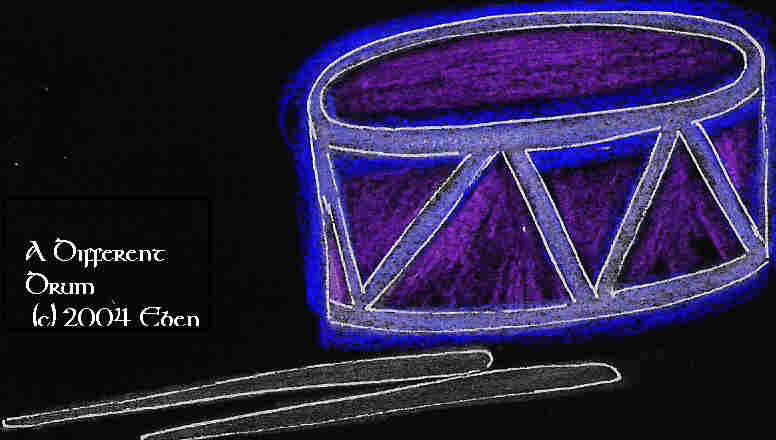
Cornwall was not the only land bordering the Atlantic having trouble with birdlife. Northwestern Spain, Basque country, was another. This time the consequences would reach far, indeed,, in a way that would force the attention of the besieger.
"I better go then," said Julio to his father at the mill, a family operation that, until now, wasn’t directly concerned with anything but producing the best steel in Europe, Sweden notwithstanding. How could they have known that the fate of the common wood dove was inextricably bound up with the Toro Del Fuego Rolling Mills, as they called it?
"Yes! And the Blessed Virgin and the wood dove go with you!" replied his aging parent.
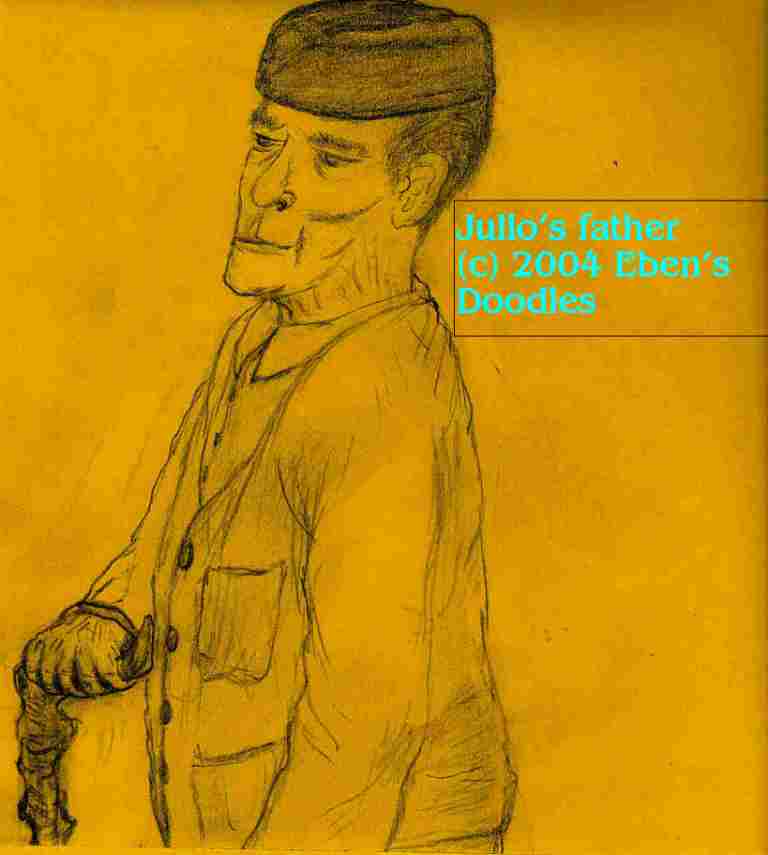
His eyes filled. He himself was twenty, his father--marrying and conceiving late--was well over sixty. How long would it be? he wondered. Yet the old one insisted on coming to the mill and spending the week in work when he could be home, comfortable in a chair, with his wife, who was yet only forty, to wait on his needs.
Julio smacked the papers against his hand as he looked out the window on the glowing foundry below. Already they were a week behind in getting steel to the boatyards, and as a major supplier they could not afford to be late. Yard supervisors were coming to him already, giving him anxious looks and asking politely about how things were at Toro Del Fuego.
Just that moment his secretary opened the polished oak door. He heard the distinctive creak it made and knew what was coming. Another supervisor!
Julio groaned and, putting on a gracious smile, turned to received him.
He was surprised. It was his secretary holding out some tickets.
He shook his head and gave out a hearty laugh.
"You know everything that's needed before we call for it!"
The silvery-haired woman with the hooked Hapsburg nose shrugged. "That's my job. What if Senor Julio San Giovanni de Irazusta of Toro Del Fuego had to wait a day to go to Britain once he decided. Some business we would have then!"
She was right. He took the tickets, stuffed them in his pocket, and after a last look around scooted out the door.
Modern Transport had progressed to the point that Cherbourg, France, to Swansea, Wales, involved only a three hour hop across the Channel by boat. Bilbao had boats. It built plenty of them for shipping lines from all over the world. It also made the steel that went into them. But one thing it lacked. Not brains, not brawn, not boats and steel--but coking coal.
He knew his Welsh suppliers. A letter would do no good. Phone calls would do no better. No, it was best to deal, man to man, on the problem. The coal was not arriving regularly, not since April. What could be holding them up? Welsh separatists? Wage disputes? Too much wine, women, Welsh poetry and song?
Julio was still pondering these questions as he got off at Swansea and walked on foot to the mining company's port offices of Llywelyn & Rees, Ltd. Surprised at the big flags draped across the top of the building--all displaying Wales’ fierce Red/White Dragon--he went in.
Clerks nodded to him as he went to the back offices. They all knew him--or at least recalled the young man his father had brought over to break in with his suppliers.
The secretary, after a word with her, went away and came back almost immediately. She held open a door and he went in.
A portly, short but dignified man in a dark suit rose from his chair with extended hand and a broad smile.
"Mr. Julio--er, Irazusta? Of course! Irazusta. How is your grandfather doing these days?"
"Father," Julio corrected him gently. "And he is fine. His feet are bad, but his heart and mind are hale. He insists on working every day as usual, just as he worked when he was my age."
The company manager chuckled. "Oh, I can guess he'd do precisely that! He was all starch and business when we last saw him on these premises--wouldn't expect him to quietly fade away, now would we?"
The manager motioned him to sit down. The secretary came in and stood.
The manager glanced at her, then Julio.
"Would you like coffee or tea? And do you use cream? sugar? and something even more Welsh in it to get your manhood jumping like a fresh daisy?"
Julio was young. He was maybe too brusque where business and getting his steel to shipyards was concerned.
"No, thank you. I've come to see about a certain delay in the shipments we've ordered for the year."
"I'll have my usual, without ice, darlin’" said the manager to the secretary, who bit her lower lip and went out, returning a moment later with a tall glass of dark, highly viscose liquid that looked as if it could lubricate the joints of a lorry.
He turned to Julio as soon as he had a deep sip.
"Now, to business! Yes, about that delay. It's come to my attention as well. Usually, they conspire to keep me from knowing these things, but I have my own men to get the information I want. You see, Mr. Irazusta, just because I have workers, I can't always assume they are working for me. Sometimes I actually find they are working against me for reasons of their own."
He sighed and threw up his hands.
"But you know all about these things. Human nature, Welsh manhood being what it is, behaves the same--"
Julio's look must have shown that he wasn't buying human nature at the moment, just plain, old Welsh coking coal. He leaned forward to the manager and gave him an intent look.
"We must get the shipments, and they simply must be on schedule--not a day sooner, not a day later. Can you manage that?"
The manager blew out a gust of air and swung his head about in his tight collar. He rose and went to the window, which gave him a view of the docks and shipping. He turned back to the waiting Julio and his eyes were no longer so genial.
"I really wish I could, sir, but--"
The manager held out his hands as if the matter were out of his control.
Julio rose.
"I know I must dig a little deeper then. Maybe closer to the seam. You've been very kind. Now good day!"
He strode right past the secretary, who jumped up as he passed.
"How impolite these Basques are, not like the Castilians and Catalonians!" she said to the manager a moment later. "Hardly civilized, walking out on you like that? I have never seen such a demonstration of--" She would have liked to use the term, "male chauvinism," but thought her job was worth an ounce of discretion.
The manager sighed and sat back down, glass in hand.
"Never mind the boy! Let him try and fix whatever's wrong with them. I've had enough of it! Don't you think, dear?"
The "dear" looked at him as if she had not heard, pulled the door shut and went back to her tabloid Daily Mail coverage of the coming Investiture of a new Prince of Wales and the latest exposures of his secret love life.
Two days from the meeting in Swansea with the company chairman, the matter was fixed. or, at least it was resolved, with some chance of the coal getting back on schedule in the near future.
Julio walked away from the mine office with one of the officials who was showing him to the company car that brought him.
Julio stopped at the vintage Bentley, then took a few steps back away.
"I'll be taking you back, sir!"
Julio considered the man and his offer. Though it had taken him there, he had never really seen the country. He had been to Wales only once before, and his grandfather saw that it was all business. Perhaps this was his chance. His feet were good. Why not?
"No, thank you," he said, giving his gracious smile and handshake. "I need to put my Basque feet on real earth. It will do me good."
"But it's many a mile to Caer yn Arfon--"
Julio, shaking his head at the odd Welsh pronunciation and smiling, set off the good Basque way, so he could see the country for himself, breathing the unfettered air, soaking in the life-giving sun, treading the good solid earth with his excellent Basque feet. After a while, deep in the rolling hills and mountains, he was delighted seeing a lone pony rollicking through the grasses on a hilltop. How free! How unfettered! Surely, that was how a man's spirit was meant to be, created so by his Maker, he thought.
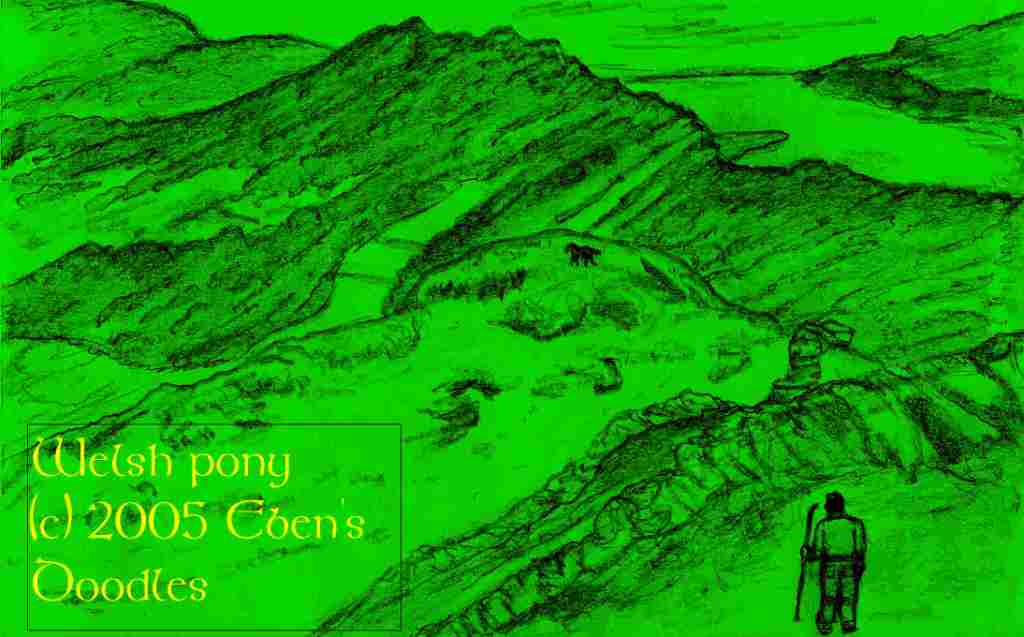
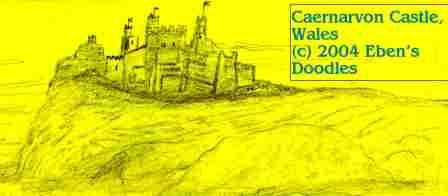
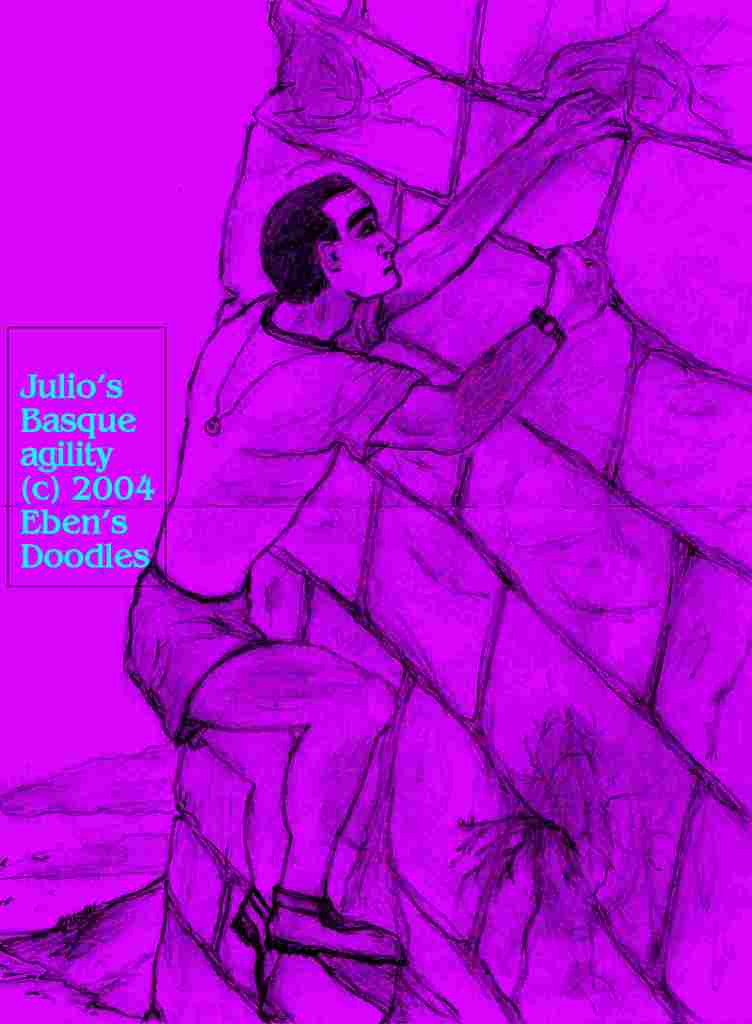
Dropping into town, he found a nice pub for a bite to eat, and the old-fashioned proprietess spoke Cofi, the local dialect, so he couldn't understand a word, but the seafood was excellent. She pointed out the window, toward the Menai Straits, and then to a framed picture she had, showing the old ruins of Segontium, the original Roman fort and city. He understood, and nodded he would like to see it, which he did, since the roads were impassible with traffic.
Standing in the excavated ruins, he read the plaques, inscribed in English as well as in Welsh. Julius Caesar had mentioned the area's resident British tribe, the Segontiaci, and later the Roman commander, Agricola, founded a fort at the estuary of the River Seiont, after conquering the Ordovices in 77-78 AD. Segontium was then connected via a Roman road to the legionary base at Chester. Emperor Septimius Severus later built a stone fort, replacing the wooden one. The Cohors I Sunicorum, a Roman legionary force levied from the Sunici of Gallia Belgica on the continent, had garrisoned the stone fort.
It was fine view across the straits, and on a clear day some claimed to see Ireland. He thought how this far northwest point of Wales, with its river and estuary, must have been a chief port in the old days for traffic between Ireland and Britain, from the very earliest times--and so the Romans--who always had a keen eye for strategic sites--had planted their standard there.
On leaving Caenarfon, after the bumper-to-bumper traffic thinned out, he could walk the center road without having to step into the ditch for some official's speeding limo every few yards.
The boat home at Swansea was waiting for him--as if by magic. He hopped on and thought how well the trip had gone as the ship crossed the Channel. His father, he knew, would be pleased to see he had handled the matter so professionally--and even more pleased when the coal came in on schedule.
If not, it was another trip back! And Julio was prepared to do it.
He stepped in the door of his family home and was suddenly confronted with aunts, uncles, cousins--all looking solemn as death. He pushed through and got to the parlor where his father sometimes lay, unwilling to make the climb up to his bed when his feet were worse than usual.
He found his mother, his two sisters, and more relatives. He found the "etcheko jaun," "master of the house" his father at last, a richly embroidered cloth over his face as a priest finished the last words of Extreme Unction.
Everyone crossed themselves, then the priest made motions to go. Most of the people went with him, leaving Julio, his mother, sisters, and some few widow mourners in dark robes.
His mother turned to him. Her expression was the same as he had always known it--she seemed aged, yet ageless--a mother's eternal face, solemn, all-knowing, all-accepting of her own frail offspring and its misdeeds and short-comings. She was a rock that nothing in life could ever overthrow.
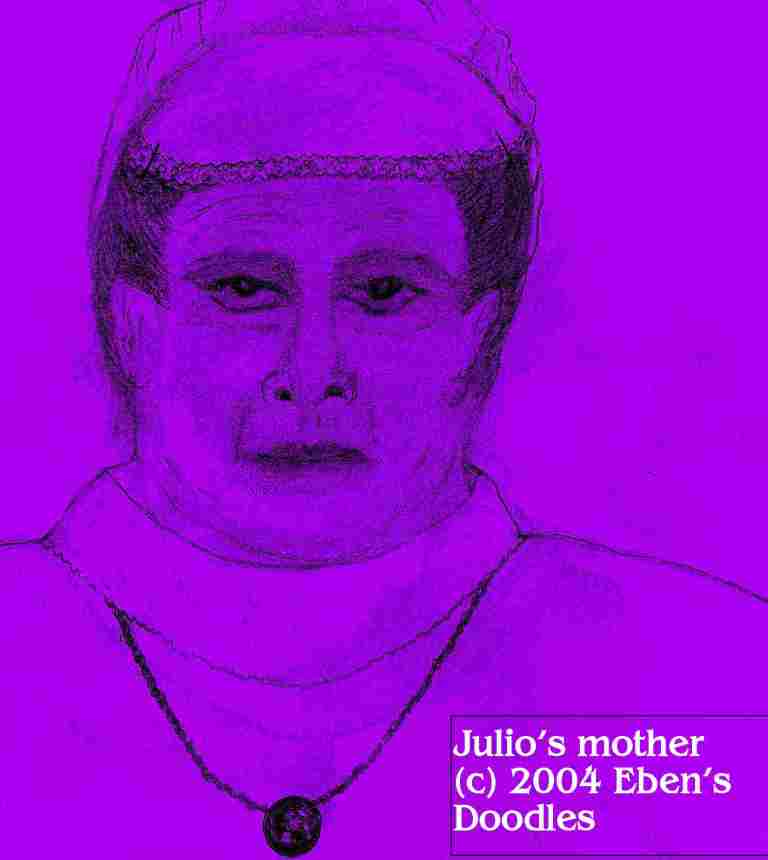
Later, though it had not bothered him before, Julio could not bear the thought of the workaday mill and all its noise and belching stacks. He escaped the day after the burial up into the mountains. It was the mountains that had birthed his people, not the easy life of the seacoast.
Climbing through thick bracken and craggy rocks, he felt the sharp edge of the wind and the drank in the warm sun and smelled the fragrances of fern and wild flower--it was the same! It had not changed, not for thousands of years. He had only been away a year from the mountains anyway--since his last dove hunt with his father.
He did not stop at the village but kept on until he reached a shepherd's hut named "Goizean Goiz," "early in the morning." There he rested until early the next day, though he felt little strain from the nearly vertical climb itself. He had brought some food, which he ate, then he went out to netting grounds running on the only level stretch in the pass, the "palombiere," or "place of doves."
Every year, for thousands of years, his people had gathered at such places, to hunt the delicious "utzo churia," the wood dove that flew from wintering grounds in Africa to Scandinavian refuges always by way of the mountains of Eskual Herria. No one knew why they came--they just came. It was out of the way, they could fly straight and avoid the loop eastward into Eskual Herria, but no one would think to tell the birds that.
He was just in time--old friends of his family greeted him--somehow they had heard, and he listened to their condolences. Though now, eldest and only son, he was the "etcheco jaun," it meant nothing at this moment compared to the loss that gave it to him. He nodded and lowered his eyes and let them go back to preparations for the hunt.
Finally, the nets were ready. It was time to climb to the Tower of Death, up to the hut constructed in the biggest tree.
No one would think to stop him. It was his right to do it. He made the climb with his third cousin, from the French side, Jean-Zalbador Luz from St. Jean-de-Luz.
It was time as soon as they got to the hut to look out for the wood doves and, sighted, throw the wooden paddles that, winging overhead, looked like falcons to the birds and drove them earthward, right into the waiting nets.
Julio could hardly breathe--it was the old excitement, older than Rome, older than Egypt and Assyria, even as old as the first Eskual Herria, the lost, Atlantean "White Land" some said. A longing for what was lost and impossible gripped him heart and soul. All over a little wild-dove!
But how beautiful and brave a sight they were! In years past, as a growing boy, he had climbed to the Tower of Death and waited there with his father for them. Then, in a flash, thousands were swooping past the tree, a cloud of beating wings. The hunters had to be fast to throw the paddles before they had swept past the nets.
They waited. They waited some more.
One, then two wood doves, flew by. A bunch of maybe a dozen also appeared, not stopping as they flew on toward the north.
Still, no birds. Not enough anyway to warrant throwing the falcon-paddles.
This had never happened before. What should they do?
With crushing disappointment on their faces, Julio and his relative finally climbed down to the waiting group at the base of the tree.
They all gazed skyward, no one saying anything--and Julio the most heart-broken and bewildered of all since he had failed to fulfill his father's last sacred wish.
Neither could ornithologists make anything out of it. The migration had failed somehow. Was it the changing weather pattern from temperate to sub-polar over much of the globe? Or pesticides? Or increased solar radiation levels, detected by scientists around the world?
For answers they would have to make expensive, difficult treks into the African interior, and that would require funding, probably government grants. When they did find the wood dove's wintering grounds, would they see anything but dead birds' feathers and bones? No one really wanted to go--and so no one did. It concerned, after all, only one avian species. Nothing irregular was happening to any others that they were monitoring.
So, as it happened, only the Basques, culturally tied to this particular bird since mankind first entered these mountains, waited for the doves' reappearance--as if their lives depended on it. But they waited in vain.
The world simply did not care enough to find out the true reason--why the wild wood-doves, unlike Capistrano's faithful flocks--did not return. But for the Basques it was something of a national tragedy--a sign that, here at least, the world had come somehow fatally unhinged, losing the linchpin at the center. Troubadours, the "bertsolari," expressed the heart cry of the people when they began to sing, competing with one another in rapidly improvised verse. They began with the well-known "Song of the Wood Dove" and went on from there in dialog between bird and fowler as old as human memory, perhaps.
From my country I departed with the thought of seeing Spain. I flew as far as the Pyrenees, and there I lost my green youth and sorrow overwhelmed spirit.
But white dove, white dove! You have not come to our mountains.
Where have you flown away? Our hearts are broken each day you do not fly in our land! We will die if you do not come again to us!
I cannot help it. I lost my green youth and sorrow overwhelmed spirit.
This year the crystal broke, in dance after dance, just as it had broken in 1945, upsetting the host particularly, at Winston Churchill's bash for Truman and Djugashvilli at his Potsdam-Babelsberg villa.
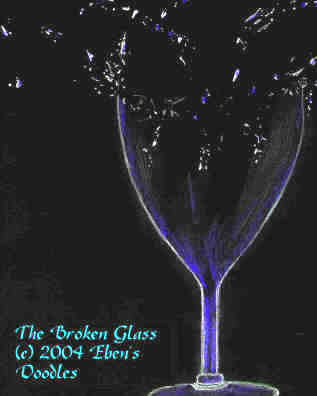

The doctor came at once to the house of the Irazustas. He knew the family well, having attended the old man before his predictable demise as well as certifying the death.
"What is wrong with him? He no eat, no sleep, and now he no work! This is not like a young man! You must do something! I have a good village girl for him, and just the right gifts for him to take to her parents."
Dr. Baroja followed the distraught matriarch into the mansion and was shown to a small room at the rear. He knew his Basques well. They spent so little time in sleeping rooms, why make them anything big and special? Basque life was public and centered on the household kitchen, the taverna, and the village or town square, in that order.
Julio's monastic room held only a picture of the usual "Sacred Heart of Jesus," an iron Crucifix on the wall, a simple cot, and no rug on the daily-scrubbed wooden floor.
The mother waited at the door. There was no room for the three of them.
"My son," she called gently to the form turned away from them in a thin blanket. "I've brought Dr. Baroja. He wants to take a look at you. Please let him look at you, my son."
She turned away in tears and went into the hall, while Dr. Baroja stood and looked down at the unmoving Julio.
After a few moments, Julio shifted position and the blanket fell away from his face.
Dr. Baroja, even in the dim light of the single bulb hanging from the ceiling, was surprised by the emaciation. He had seen Julio at the father's bedside and it was a different Julio then--full of color, manly powers, and the famed Irazusta comeliness. This Julio he saw now lying with eyes closed looked more like one of the Spanish saints in El Greco--thin, other-worldly, ascetic to an extreme, all the fine bones showing.
Concerned, the doctor knelt and slowly, very gently, began his examination. Julio was a good patient, making no resistance as the doctor feared he might, though he did not respond to requests to move his limbs or sit up. Dr. Baroja had to test his reflexes where he lay.
The examination over, Dr. Baroja stood and looked down at his patient, only twenty one, at the apex of a man's greatest virility, strength, and beauty, yet betraying the certain signs of one hovering close to death.
He slowly shook his head. A tap at the door made him turn, and he saw Julio's mother, with her two daughters standing behind her in the shadows.
Mrs. Irazusta had a bowl with a steaming liquid on a tray with a spotless, embroidered cloth.
"Since you have cured him, he will need to eat something now, no?"
Dr. Baroja gave her a sad look and shook his head.
"I cannot do anything for him. There is nothing wrong with him! Nothing!"
He knew what her response would be, but he could not help it. It was the truth.
She was indignant to a point of fury--all her bafflement and fear coming down on his head, because there was none other she could pour it on besides her two daughters.
Though a most dignified, courteous matron, she motioned with a brusque gesture to get himself out into the hall, and then she turned on him.
The excellent broth, he noticed while she raged at him, was spilling on the cloth and the immaculately swept and polished wooden floor.
"You are worse than a Gypsy quack!" she cried in a furious low voice. "Give him an injection and get him off his bed! Why can't you do that? Did you do that? I call you here to do something. Then you say he is well, there is nothing wrong, when he lies there for two days now not moving, not speaking, not eating--?"
The tirade went on for an eternity, and the daughters shrank back, the doctor noticed. It was most unseemly for a woman to address him like that, though he knew very well he could not claim higher social standing than a mountain trail muleteer. But he understood--the prospect of losing both men in the family was too much and something had snapped. She would recover--in time. But for now there was nothing to help her--nothing except her religion, if she would only recall it.
But, her anger and bewilderment finding fewer and fewer words, she did recall after she put the tray down and her hand went to her neck. It seized on the crucifix she wore day and night and her eyes closed in intense pain. A moment later they opened and the madness was not so bright and terrible in her eyes as she gazed at him.
As for the soup, she remembered that too, and had her daughters help her clean up the floor immediately, while apologizing to the doctor for the inconvenience.
Julio continued to lie in his bed, sinking lower each day.
His mother could not see her only son die and do nothing more. She called in every doctor she could get to come, though some refused, having heard on the grapevine about the case.
As happens when no cause can be determined, extraordinary means were tried. Not because of her important position as mill owner's wife but due to most ancient ties of honor and dignity, Mrs. Irazusta's range of contacts was wide in the villages of the hinterland, and strange-looking, older women scurried in from places near and far--but mostly far, they said, getting an extra bonus from the mother. They plied the sick one with all manner of herbs and rich invocations of the Blessed Virgin, saints, sun, moon, stars, and, the old stand-by, the Zodiac.
Seeing no change for the better, the desperate parent packed them out of the house one day and turned to Science as a last resort. Though it was a new import to her thinking, therefore suspect as such things should be, some Basques had taken to it and done well enough, so she was willing to test the waters.
"Medicals are fools! All fools and quacks! And the old wise women, they are greedy for money--they are as ignorant but still they demand money which the quacks are ashamed to do. No, I want my boy to live! He must! I will get someone--maybe the Americans can help. They are so clever, those people. They can do anything. Let them save him!"
Having heard of American Space Science and Exploration from her daughters who were high school age and very good at studies, Mrs. Irazusta got an English-proficient operator and wired the National Academy of Physical Sciences in Huntington, California, appealing for help and describing Julio's symptoms. If one virtue typified the Basques, it was persistence against impossible odds--and Mrs. Irazusta was no exception to this.
She received a kindly composed and courteous letter. They could not help here, since the National Academy was not a medical research institution, but they referred her to the Mayo Clinic in Rochester, Minnesota, John Hopkins in New York, the University of Washington, and other renowned medical research facilities.
She tore the letter up, then reassembled the pieces after getting an idea. With her daughters to assist with English, she sat down and wrote a long, difficult explanation of how “different” this case was.
Her brash idea worked. It was simple. She said that Julio was a particularly good case for science research since all medicine and doctors had failed. She added that she would be happy to pay the expenses of any scientific investigation into her son’s condition.
"A perfect, healthy man in his blossom cannot die from nothing!" she wrote. "He is struck down by the poison breath and dews of certain wicked influences from the stars! There have been cases before of that in our history, you know. This is a new case no doubt--but here it is in our Bilbao! He was out in the fields above the city, he went hunting, then he comes back and soon he no longer can work, can eat, can speak--he is a vegetable! It was not the bad cold wind, he was not shot by anyone--he is just the same son in his body but he is dying. No man can die without a sickness or a bullet! It is not scientifical!"
The crisis had revived an old memory. As a little girl she had listened, spell-bound, to a troubadour who had wandered in off the road to her village. He started singing while they were doing last chores and getting ready for a meal. It brought everyone outdoors to hear him, he was that good. Normally, being so young, she would not have paid anything but passing attention. Many such penniless troubadours toured the land year-round. Then everyone customarily sang unashamed in her homeland. It came as naturally as dancing to them.
Shepherds sang to the mountains and their flocks, school chums sang to each other, men in cafes sang to visitors from other lands. If they had an army, it would sing first to the other army before killing all of them. Then it would sing as it buried the invaders. It was a common thing. But this old man was different, his song was about an evil worm wandering the wide earth and doing what mischief it could.
The worm crawls in the bud, and eats the rose unseen; beware the worm, beware!
She gnaws the rose with teeth red and keen!
It was the greatest courtesy they could think to do him and his strange, malevolent Worm. Would the singer return? they wondered. But he never did. Perhaps he died of old age before he could find their village again. His village was supposed to be on the French side, though no one had heard of it by the name he gave. Somehow everything--old man, worm and the flashing-red teeth of it--came to mind when she was most desperate to save her son. It was a clear warning that "something" lurking hidden in the world was doing much mischief to man and beast.
Her English improving with each attempt, she wrote five letters more, each longer than its successor.
Finally, the National Academy had to agree with the amazingly persistent Basque woman--that her son's case was a bit unusual. A department supervisor got involved who wrote requesting medical diagnoses before he would do anything. Mrs. Irazusta sent a big cardboard box of them express airmail.
Weeks passed and there was not a word, then the telegram operator came running to the door from his motorcycle.
Haggard, her eyes red, half in grief for her lost son, Mrs. Irazusta answered, then took the telegram with a listless hand. She had no strength to read, and it was English. Her eldest daughter came out to look and saw the problem. As she read it took only a second or two for color to come back into the mother's face. She had her daughter read it again, then again.
Within minutes of the final reading, the Irazusta household was transformed. The three women were busy from then on, cleaning what was already clean, making ready for the coming of the two "astrophysicians," as they were called in the telegram. Since she had refused to move Julio, they were obliged to pay a visit.
"From Nay-Sah! I never heard of such a town! But they are wonderful experts!" the woman cried joyfully. "After all, they're Americans!"
"Mother, that is NASA," corrected her sixteen year old eldest who knew about acronyms. "National Airplane and Sailboat Arrangement! It sends up all their big moon rockets."
Her younger sister strongly objected, holding out "Aerosol" for the "A" and "Sanitary" for the "S", but even Madame Irazusta thought that far-fetched.
It did no good, she was fixed on Nah-Sah, some American city of experts that produced men who would cure her son of his mysterious but deadly malady!
NASA was coming! American rocket scientists! For a mother who had given up on all the medical and herbalist-soothsaying profession of Eskual Herria, what could be better?
The news of such strange happenings at the Irazustas soon swept through all the city. Crowds began moving slowly past the mansion, pushed along by gendarmes who were just as curious to see the "rocket scientist" guests, who they'd heard were going to build a solid steel spaceship in Bilbao--one that would take Basque volunteers to the Moon!
As soon as she had them safe inside from the mob pressing at the door, she started right in about the reason for their visit, her son's condition.
"Men do not fall sick for nothing! He cannot have a sickness, just as the doctors say though they do not know anything else! No, he goes up to hunt the wood doves, the thing we do every year. He comes down to die! But men do not get sick at hunting--it is good for the body and spirit! Very excellent! But no, he comes down to die! Surely, it is a thing the stars did to him--there is no other evil thing on earth to kill him like this!"
Her daughters interpreting for her, she poured out this and similar sentiments, while Drs. Hegel and Beckworth listened politely if not too closely.
Actually, they had been well briefed on the wealthy widow of a leading Bilbao industrialist, and did not mind giving her a few moments to express grief behaviors.
The actual exam was done quite properly, with the women removed. Exciting the crowd as each arcane item was uncrated, they brought in instruments and began running cable out to get more power.
Some of the more imaginative spectators speculated that the Irazusta house was to be a rocket launch pad, the first of many planned for Bilbao. People laughed, but as always happens some took it seriously and ran to tell others.
Busy as the visitors were, they sometimes had to comment on their unusual venue.
Hegel turned to Beckworth.
"Imagine how these Basques live here! This is one of the better houses, but there's no bathroom, no hot water, no--"
His colleague laughed as he worked on a last minute adaptation to a TSRG, or transponder sonar receptor graphopheme.
"That's par for this culture with its peculiar mix of the Iberian Stone Age and high technology! They're a most strange, austere-living people and, besides preferring absolute simplicity in their living arrangements, see nothing hygienic and civilized in having a place to relieve oneself in the same dwelling where human beings prepare food, eat, converse, and sleep. "
Beckworth recalled something from med school. "Why, if that isn't strange enough, some say they're the last of the Cro-Magnons, which I personally think is rubbish. They choose to be backward in some respects, but they're some of the most enterprising, productive, and adaptable people you can find. I've worked with a Basque or two on different projects, so I know. Wherever you find them, they seem to rake off more big grants and Nobel prizes than anybody else. But the last of the Cro-Magnons? Obviously, that's hogwash. Racial extinction is a sure sign of a lack of adaptation--intelligence, in a word. Basques, being so clever and vigorous, are not likely to be expire and fade away. That's what, to my mind, makes this case we're working on so interesting. By the way, I did a little research. This is the family--these Irazustas--that produced Ignatius Loyola and the Society of Jesus--perhaps the most learned body of teachers and scholars the world has ever known. Now that this family's no longer producing firebrands of scholarship and piety, they're turned to making some of the best steel in the world. What they turn to next is anyone's guess, but it will no doubt be something superior."
"Talk about rubbish, there's something even more ludicrous: the Atlantis connection!"
They had a good chuckle over that.
"But, Alvin Tarkington, " concluded Hegel in a more serious tone, "there is something authentically different about these people--beyond a cultural pre-conditioning against having flush toilets in their houses. I mean, there's been studies, by anthropologists and others, of blood groups, and the Iberian Basques have the lowest incidence in Europe of B blood group, a high in O blood group, and the highest known frequency world-wide of Rh-negative blood type. I can see where people got off on that Cro-Magnon and even that 'refugees from lost Atlantis' notion. Genetically, they are different from us. Genetically and culturally, they do march to a different drum and drummer."
Beckworth's smile faded. "But Kyle Otis--" he began, then said nothing more and suddenly found a million things to do.
The equipment, brought in a van from the Bilbao airport, was fully installed in the tiny room, with the hall being used for electric cables and even empty crates, which had to be brought in to save them from souvenir collectors outside the house. It was a tight squeeze, but they had the transponder, TSRG, encephalograph, X-ray, and everything else in place. They even had a radio receiver just in case NASA had an emergency and needed to get in touch.
Julio, all while this was going on, remained silent and comatose.
A curious priest got in despite Mrs. Irazusta's express order, and she had to stop him herself from going in to administer Last Rites.
After she had sent him packing, she and her daughters waited anxiously in a room down the hall, the closest the experts would allow.
They heard some strange noises--vaguely like chirping birds or bats at night, the men talking, then saying nothing for long periods, and then some machine making rapid "Zzzzt" sounds.
Before the machine had quit Dr. Hegel came out and motioned to the mother, who was continually looking out of the room, unable to sit quietly and wait.
He spoke very quietly, intensely, and kept blinking rapidly behind his thick lens.
A pencil clenched in his hands was being bent as he spoke.
Madame Irazusta jumped as it snapped.
"Odd, most odd! Of course we will take the data and run it through UNICOM back at the institute, but I can tell you something now--to relieve some of your strain of not knowing anything, Mrs. Irazusta."
She nearly collapsed as her eldest interpreted. Her daughters had to hold her slumping form as it dawned on her.
Huge tears slowly formed at the edges of her eyes.
"God has answered a poor mother's prayers! The Blessed Virgin--"
The scientist smiled, then quickly continued, as it to cover the rather gauche and melodramatic aspect of her response but actually to get things wrapped up faster if he could.
"No, Madame, you are getting a little ahead of the research process. We have no answer as yet--and perhaps it is outside our field altogether. It may be chiefly a matter for astrophysicists and radio astronomers. But the instruments seem to indicate that radio waves are being transmitted from his vicinity."
The mother looked bewildered as her daughter translated.
"'Vicinity'? We have no such vicinity here in my house!"
The astrophysician was most gentle in the trying moment. He explained carefully that he only meant that he had not excluded the possibility that her son was not the transmitter of the radio waves--he might just be in the area of the transmission.
This was no better, the mother was just as confused. Dr. Beckworth came slowly out of the room, his eyes dark and brooding. He motioned to his colleague.
They conferred for a few moments, and then Dr. Beckworth went back in to Julio's room.
"We'll be packing up soon and going," Dr. Hegel informed the family. "We've got sufficient data for a study and a computer analysis. You have been so kind to have us. We must thank you for the opportunity to visit your beautiful home and--"
Her eyes rolling back in their sockets, Mrs. Irazusta struggled to keep him.
"No, you must tell me what you mean. I must know what is killing Julio my beautiful son to a vegetable!"
Her agonized outburst carried from the Basque without translation, and the astrophysician glanced quickly toward Julio's room and then back at the mother.
"All right, I will explain what I can now to you," he said in a hushed voice, letting his airline tickets expire quietly in his pocket. "Please listen carefully, for I won't be putting this in writing. It could mean my career, my reputation! I'd be made a laughingstock!"
A tall man, he bent low to be able to speak so confidentially without his voice carrying to the sick room. His face was one great painful blush.
"Your son--I don't know how--is sending out a radio message. Something is causing his hydrogen atoms to vibrate and send out radio signals. Taken together, the signal is repeated, again and again. Always the same signal. It's carrying a code I'll have to give to our computers to decode. The pulse was strong, but gradually getting weaker as we monitored it. Your son, Mrs. Irazusta, is telling the stars something--you were right to say the stars were involved--they are! But obviously he can't keep transmitting like that--it's draining him. He'll die if he doesn't stop. Unfortunately, he probably wouldn't know what we're talking about. It's an unconscious thing he's doing, and he wouldn't understand if we asked him to stop. No, he wouldn’t understand at all!"
It is not known just what Mrs. Irazusta understood of Dr. Hegel's brave admission, for, in truth, she couldn’t tell a hydrogen atom from a heliotrope or geranium. Yet in days following their guests departure her daughters repeated their scientific prescription many times as best they remembered. Hearing it, she seemed to be satisfied to a degree. Though she knew and accepted that Julio was doomed, she sensed her vindication in the man's words. He had spoken to her in different way that she could not mistake--not politely while keeping back his own secret knowledge but openly, even to the point of shaming himself unprofessionally before her.
Even though she would later receive a polite letter from them, explaining that they had fully analyzed the "data" and arrived at no scientific explanation for her son's condition, she knew differently. Madame Irazusta was admirably composed when Julio died, the day after she received the letter. Her house once again full of priests and mourning relatives, she saw that everything was done properly. Everyone that saw her commended her steely manner--amazing in one who had so recently lost her husband after twenty three years of marriage and was left with two daughters to feed and clothe.
"Our fathers' most holy faith has brought us through this!" she told her daughters afterwards, speaking from a strange composite of triumphant faith, peasant shrewdness, and existentialist-like angst that was quintessentially Basque. "My heart was broken to smithers. I could not believe the priests' words any longer. There was no sense at all in them. Now I believe them, every word. It is God's mystery, why such things happen. Man knows nothing about it. We must simply believe, my daughters. We must simply believe."
With a little help from American science, it might be added, not to mention the considerable Irazustra fortune.
But her daughters, now fatherless and brotherless, showed they could grasp reality with belief as ably as she. Too rich to attract suitors of equal or better means, both applied themselves to running the mill. Though behind due to the Welsh, they soon had it back on schedule. That came as no surprise to them, since they were as Basque as any man around them and persisted--as their forebears had persisted with Carthage, Rome, Byzantium, and so on--until they got their way.
Unfortunately, specialized as Hegel and Beckworth were, they failed to note some previous deep-sea research that might have shed some light on their own inquiry into the "Irazusta case."
With their clearances they could have learned from 3C 295 (radio source 295 in the Third Cambridge Catalogue of Radio Sources) that the whole region round the site of a certain sunken luxury liner in the North Atlantic, including seabed and water, was transmitting a signal. It was the same wavelength and frequency, the same radio signature, as Julio Irazusta's in Eskual Herria.
The message? Always the same in the case of either the dying or the murdered:
Professor Davis Lattimer Detweiler’s dream of a colossal spectrometer--able to smash atoms and open up the subatomic world for scientific inspection--came true on Stanford University’s campus in the rolling, brown, celebrity-studded hills of Southern California. Built with the then unheard of price tag of 114 million, it did not tower into the clouds as it was pictured on Detweiler’s office wall. Instead, it lay half-buried, running two miles across campus, crossed at one point by a commuters’ expressway. At the end towered two cavernous concrete structures called End Stations A and B that housed the targets and several six million dollar spectrometers.
From start to finish a 4-inch copper pipe lay embedded in concrete, covered by giant klystons that pumped incredible microwave energies into the tube to speed the electrons along to the targets of various, chosen elements. Once an atom or its nucleus was struck, the spectrometers tracked the deflected particles for identification. Did the atom nucleus stop at protons and neutrons, or was there something even smaller? Project M, resulting in the Stanford Linear Accelerator Center (SLAC), was built to help find an answer--if there was one.
Congress proved particularly reluctant to serve up so much lettuce. It was back in the early Sixties when the highly expensive NASA’s moon mission was the top priority.
Dr. Ulrich Von Chewn, project director and first head of SLAC, liked to remind his guests at later dinner parties what a rough time they had had in Washington making Professor Detweiler’s dream a stunning reality.
Invariably, he prefaced his anecdote with some description of a certain, peppery Dixiecrat with a typical fourth or sixth grade education, Hiram Boggs Smoot III. One of the enigmas of the American political process, he was chairman of the powerful House Appropriations Committee, the third member of the Smoot dynasty to hold that kingpin position. You had to meet and talk with such people or you couldn’t believe they existed in real life, he added. No caricature or political cartoon did them justice!
Von Chewn was good at aping speech patterns and nuances, particularly those of politicians. Everyone found it amusing, time after time.
It was so funny, in fact, Von Chewn himself had a difficult time keeping a straight face as he played the parts of the wily, homespun Smoot and the Stanford don in confrontation over the funding.
“Monster,” Von Chewn replied crisply.
“‘Maawwwnnn-sterrrr‘,” repeated Smoot, rolling the syllables round in his mouth. “Maawwn-AWWNNN-ster.”
He was working toward four syllables and at least two accents when Von Chewn slammed his briefcase against the table, derailing the congressman’s agenda temporarily.
Then the man who held the nation’s purse strings looked up at the ceiling. He was still gazing there when he continued the inquiry, showing Von Chewn only the whites of his eyes.
“You have a good memory for figures, congressman,” Von Chewn replied with enough frost in his voice to chill the Congo.
Smoot pressed on, his eyes slowly descending from the ceiling to a point just over Von Chewn’s head.
“Well, that’s all mighty fine and all, but my daddy--bless him--would have had a bit of trouble swallerin’ this big an amount, even if it was to put an extension on Jacob’s ladder. Why, if this don’t remind me of Farmer Littlejohn’s sow, Daisy Mae. She been his best breeder hawg, you unnerstand. A farmer takes a whale of pride in hawgs like that, or he ain’t much of a farmer, is he? Well, one fine day she up swallered four sacks of surgahbeet. Those beets were spoiled real bad and Farmer Littlejohn was fixin’ to plow them under that very day before they caused any trouble. He had just drug ‘em out next to the pigpen and set them up when he had to go do somthin’. Well, as I said, ol’ Daisy Mae beat him to the beets! And when she done took herself a nice drink to wash it down she done exploded. She blew like ten sticks of dynamite in mama’s banana cream pie, takin’ out the fence on the pen and part of the barn roof. My, didn’t poor, old Littlejohn have a fit. He was behind the barn at the time payin’ Mother Nature his respects, or he’d been in big trouble hisself. But Gussie Faye the good wife saw it all from her kitchen winder. Soon as she finished washing up the dishes, she tole him all she seen. You could hear him cussin’ that sow over in Sweetwater County, since all he could find of her afterwards were her trotters. Where oh where was he gonna find anudder hawg like her? It was a tarble loss, iny way you look at it. But next spring, wouldn’t anybody have guessed it, the whole dang field opposite the pigpen was planted. Nothin’ in rows, mind you, but best surgahbeet crop in three counties, they said! A stump preacher at a meetin’ out in Honeysuckle Bottoms even said it had to be a miracle, takin’ it as a sign of the coming Year of Jubilee!”
Now it was Von Chewn’s turn to roll his eyes toward the ceiling. He always assured his audience afterwards that he had come well prepared for Smoot’s pitiable attempt to stonewall science and particle physics research. Breeder hogs, sugar beets, and down-home country religion? What did they have to do with scientific research, indeed!
“Interesting story, though I don’t quite see the point. Now we won’t take any less than the stated amount. The project can’t be completed without adequate funding. I would like to make one thing clear. If you, sir, want to go down in the records as the man who put this country behind the Russians in
science--”
The reference to the Commies, admittedly, was a low blow--a shameless use of a red herring. Von Chewn said he only used his ultimate weapon when reason failed, as it always did when dealing with Congress. Usually, you had merely to tell people that a given project would tell much about how the Solar System was formed, and that was enough to stun them into respectful compliance.
Smoot’s eyes were fixed on Von Chewn’s tight-wired eyebrows by this time as he absorbed the full gravity of Von Chewn’s broadside.
Yet he hedged, one final time.
“But why are you fine professors so hot under the collar to build THAT big a monster? Tell me that. If it were smaller, she’d cost the guv’ment a whole lot less! No sir, we ain’t got that kind of money, not until we know ‘xactly what you’re goin’ find using this ‘monster,’ as ya’ll calls it!”
“Congressman,” Van Chewn snapped, “if I knew what we would find, we would not be proposing to build it!”
For the first time, they were meeting eye to eye. It was a little disconcerting to Dr. Chewn. The world-acclaimed educator and scientist thought he might be looking at another species, he saw so little intelligence he could identify with. But he wasn’t going to give way.
On his side, Smoot blinked slowly, showing utterly no emotion, but running a tongue over his teeth and maybe considering that he wasn’t going to get this phuddy duddie professor to back down without making a nasty little fuss in the high brow Yankee papers.
Well, they got the appropriation--the full amount--so Smoot must have stuck up a wet thumb sometime about then and seen the way the wind was blowing.
Naturally, the biggest hog at the trough, NASA, was really put out when the news broke, since they were used to getting more than anybody else. But the furor from Houston soon died down. They knew better than anybody the old Russian bugaboo trick never failed, and so far nobody had the nerve to secure it with a patent.
Protons and neutrons to leptons and photons, baryons, and mesons...SLAC kept firing at atoms, stripping the nucleus down, particle by particle, until it was getting irrefutable evidence for strangeness beyond anyone’s imagination--esoteric particles Nobel laureate Dr. Bell-Mann first called “quarks.”
In those glory days, Dr. Chewn was apt to tell worshipful, perspiring groups of postdocs and graduate students who did the heavy, dirty work of SLAC, that if the Honorable Smoot had got wind that they intended to look for things like quarks, it would have been the last project of theirs funded with him as committee chairman.
The showplace facility opened in 1967. Two years later the main effort was centered on pining down the existence of quarks, which many particle physicists, Bell-Mann among them, thought theoretical entities without actual material basis in nature.
All the SLAC people knew they would show Bell-Mann, sooner or later. Well, they showed him sooner than expected. Heads and busts of the great man and scientific luminary were already showing up in select venues. But so much renown can weigh unpleasantly on human beings who do not share it in equal part. It was beginning to grate on those who simultaneously worshipped him and contested his stand on quarks.
It was September 10, late in the first shift, when they were firing electrons at liquid hydrogen targets and striking something hard and tiny inside the proton. Christopher Columbus! They knew they were on the verge of a brave new world in particle research!
Looking casual but sweating profusely, McLeish retired to his work station and waited as the data came in, the whole facility suppressing wild excitement around him.
The next couple weeks they laboriously sifted and refined the data in preparation for the International Conference on High-Energy Physics (ICHE) held in Vienna, hoping to carry the day with their two “blue chip” quark confirmations. Their high hopes, however, were crushed when Bell-Mann’s supporters cut their scheduled talk to three minutes, hardly time to read the entire paper about the investigation and the results.
Dr. Chewn left off his sabbatical long enough to come read the paper, but since he hadn’t been in on the events and McLeish did not press the singularity of it, the SLAC director left off just when he was getting to the discovery of the first and then the second quark.
Instead of experiencing an avalanche of acclaim the international community of particle physicists recognized their signal achievement, Stanford’s SLAC people sat glumly in the shade while directors of old-fashioned bubble spectrometers held forth in interminable detail on their work.
It was even further downhill from there. One of the bubble spectrometer people was speaking, and as he concluded he offered a personal aside. Nodding a wizened head, Dr. I. A. S. Godwin of Oxford’s Sacral Tincture College announced he was retiring from science, which had been his mother, father, brother, and sister for over fifty years now.
At this point people began to slip out. They weren’t being intentionally rude--this was physics, not “This is Your Life.”
Nonplused, the speaker continued in an octogenarian’s thin, quavering voice.
“Perhaps, it is rather bold of a fellow to address such a gathering as this with the cosmological and literary, but the late Miss Gertruda Steinway, American expatriate and patron of the arts in Paris between the wars, put it most succinctly when she said on her deathbed, ‘What is the Question?’”
Dr. Bell-Mann walked out. That did it. A horde followed, leaving about one third of the gathering still in their seats.
Dr. Godwin paused to take a sip of mineral water, then turned back to the ever-shrinking audience as he recovered his voice.
“Yes, what is the Question?” he repeated. “We specialists are trained too well to trot along one track, I think. We seek empirical evidence, then when we have it, we reach out in theory to encompass the Unknown, which we again seek to authenticate with more empirical evidence. By that manner we gain knowledge and control over the material Universe, it seems. But while we do that, are we asking the prime Question? If not, we are acting on the basis of the known, asking questions on the same foundation, presuming that we will someday make everything Unknown known--”
By this time the remnant of the audience was less than twenty souls, the others having left yawning.
Later, at a private party in a Hapsburgian grand-duke’s palace on the outskirts on Vienna, Dr. Bell-Mann was asked about the incident by someone who wished he might gain entrance into the great man’s confidence.
“Do we dare ask that kind of question in our field of study?” Bell-Mann laughed in response. “No, we have these daring, cyclopean atom-smashers in California to do that for us! Besides, we must remember what happened to the first person who reputedly asked it!”
Though he had led the way, theoretically, in the quest for quark particles, his remark, naturally, was taken for a polite put-down of the gung-ho Stanford quark people at the conference--those who really believed it existed and thought they had evidence for it.
Back at the venue of the ICHE lectures, the myopic Dr. Godwin was unaware he was speaking to janitorial personnel when he finished, saying with a flourish that threatened to topple the spectacles from his nose, “I for one wish before I expire to know what Question we should ask. Do you know it? I confess, I still do not!”
“I never dreamt in my philosophy that there would ever come a day I would be reading to my esteemed colleagues from this particular book. Please bear with me. I find it too much to the point to ignore at this time in my life and career. It says here in Psalm 71: ‘O God, thou hast taught me from my youth, and hitherto have I declared thy wondrous works. Now also when I am old and greyheaded, O God, forsake me not until I have shewed thy strength unto this generation and thy power to every one that is to come. Thy righteousness also, O God, is very high, who hast done great things; O God, who is like thee?’”
The aged physicist closed the book. His voice was a mere halting whisper.
“God help us, we may have slipped our moorings, ladies and gentlemen! What is the Question? Adieu!”
Dr. Godwin slowly gathered his papers, put them neatly in his battered briefcase, and shuffled out of the building, nodding to an imposing row of marble busts, Roman emperors and orators and philosophers he thought were faces of old colleagues and well-wishers gathered to see him off.
“What was that old gentleman jawin’ about anyway?” inquired a rail-thin, mop-wielding woman to a portly, sad-eyed broom-man. “I didn’t catch it--my ear gone numb on my right side, you know.”
“Sorry, madame, I don’t listen to these things--I just work here, minding my own business, if you don’t mind. It goes faster that way, I find.”
Returning to their duties at SLAC, the accelerator was fired up with a vengeance by the “quark people” under McLeish’s determined interim leadership. Grad students, they were "technocrats" first and human beings second--and were so dedicated to science and technology that the second category of their being was constantly forgotten. The media, stumbling and dragging cameras and cable through the wreckage, could not believe there was nobody dead. They kept looking for suitable fatalities until SLAC personnel broke out of the End Stations and met them. It was a stunning moment--almost like the survivors of the death camps meeting their GI liberators except that the liberated were in great shape.
“No, we’re all just fine!” Dr. Lonny McLeish cooly assured them. “It’s a miracle.”
“Cut!”
She went over to McLeish, shaking her head.
“You can’t say that on prime time, or we’ll lose our sponsors. Phrase it scientifically. Use some special scientific terms so they get the impression they’re getting something for their millions.”
“Okay. It’s an undifferentiated, unverifiable, anomalous situation here at Stanford. How’s that?”
July 14. Two thousand feet down in an Ohio salt mine under Lake Erie, in a computer room next to a huge neutrino detector tank of 7,000 tons of ultrapure water and 2,048 sensors, University of Ohio-Catherine T. O'Culligan Foundation Neutrino Laboratory (OCTO) scientists and technicians worked hard to get ready for the coming test at 11:00 a.m. This was the fourth day of tests, forcing the rescheduling or outright elimination of others.
8:00 a.m. Graduate student Govindankutty Zair from Kerala, India, was in the changing room warming up for his dive when the OCTO CEO, Dr. Sardanapolous, came in.
Stripped to a white dhotis around his loins, Zair had just taken a few leaps and kicks from his repertoire of kalaripayattu. He flashed a smile and quickly bowed his head as he spun around to meet his superior.
"Good morning, Curtis," the director greeted him. "I just want you to know the well has run dry."
Everyone else had to call him by his Keralan name or he wouldn't answer.
The project CEO was never one to waste words, even with his star employee. He was gone in a moment--especially fast for a man of over three hundred pounds.
Zair's face sobered immediately and he bowed his head again toward the massive back of his employer, Dr. Sardanapolous, as he slipped back to his office next to the computer room.
Since the inspector from the university was not yet on site, Zair practiced a few more lunges and kicks of the martial art practiced by his warrior caste back in India for centuries. He was in excellent shape, mind and body. A brilliant graduate student in astrophysics, he had signed on with Dr. Sardanapolous a year before and liked the work so well he was transferring to neutrino tank research. As a diver with his martial art training, he was peculiarly able to take the tremendous stresses of inspecting over two thousand sensors without missing one. They were all identical, and the water was pitch black, so everybody knew they had a great diver on the staff--especially Dr. Sardanapolous, whose opinion was the one that counted.
Zair, unlike the others on the staff at the project, had come a long way--from India. But as Zair was quick to remind people when they complimented him on his outstanding work, it was Kerala that had given him heart, soul, body, and the sublimity of kalaripayattu--not India. Kerala was the crown jewel of the subcontinent, according to him, and had existed thousands of years before this upstart India. He could do no less than his best as Kerala's obedient son, even though far removed at present in the depths of Ohio.
A computer tech with orange punk rocker reggae hairdo, shorts, and bare feet came in pushing a cart holding wet suits, fins, and oxygen tanks.
"I sure hope I'm in here when she suits up!" the tech winked at Zair. "Heard she's a real fox!"
Zair looked at him confused.
"Fox!" the tech shouted in Zair's face. "I mean, stupido, she is one very beautiful babe!"
The tech turned back to the computer room, shaking his head and laughing at Zair's expense.
Something flashed darkly in the air. It was Zair the human weapon who had leaped and swung a kick at the tech's head that just slightly missed, which would have knocked the tech silly had Zair been a hair more angry.
"What the--?" He looked around. "Seems to be a breeze in here."
But Zair was already pulling up his wet suit, paying no attention to anything else, and the tech shook his head and continued out of the room.
"I don't trust that guy from India," the punk rocker said later to a cross-dressed buddy in the lunchroom. There were fifteen techs, and ten in baseball caps and college sweats and no required booties. The jocks yelled mostly profanity back and forth about last season's final game between Ohio and Michigan, so the tech had to repeat himself.
"I said I don't trust that creepy Curtis."
"But old Sard does."
"Yeah, I noticed. I don't know what he sees in him. I don't give a hoot about cultural exchange students--we're the ones that handle the real meat of this racket--not that crazy little geek from India."
"But for how long? If we don't come up with some neutrinos soon, we may be all looking for a job. What do you suppose went wrong? How come the sun ain't crankin' out any neutrinos?"
"You got me. I just work here."
A computer wonk with a major in astrophysics (his tee shirt said "NERD PRIDE WEEK") , hearing the pitiful remarks, leaned over, his mouth full of alfalfa sprouts and poupon.
9:15. Virginia Newton Cargill, or "Gina," a Smith College Fullbright scholar delegated by the OU Board of Regents to inspect the facility, arrived at OCTO, topside, in arm's reach of Lake Erie.
After a very chilly spring and cool, overcast June, the clouds had parted and it was a tolerably warm morning for July. Ms. Cargill was confronted by flags, heated fountains, and sculptures entitled "Summer Ode: Three Wood Nymphs Bathing," depicted by three fine-cut blocks of granite held suspended under the pummeling water by cables.
She parked her rental car in a visitor's slot after passing a Porsche with the license plate OCTO RULES. The building itself was not open to the public until 10:30, but a guard heard her pounding and unlocked the door. After signing the guest register at the security desk, she followed him to the elevator. He forgot to inform her about the required contamination-retardant booties and ankle-length white smock, but he recovered enough to give her an orange plastic visitor's pass, which she clipped on her Zuni Indian beaded body bag.
They stepped up to the passenger elevator, above which there was a red warning plaque with white lettering:
RESTRICTED AREA
AUTHORIZED PERSONNEL ONLY
OBSERVE OCTO PRECAUTIONS
NO DOGS OR CHILDREN PERMITTED
SMOKING PROHIBITED
BARE FEET NOT ALLOWED
"The cherry’s in the bowl, Sir! And what a looker!"
The guard winced and nearly dropped his cigarette. The receiver had been slammed on the other end.
Ten minutes was a long time in an elevator, but this was a very deep shaft, more than twice the length of the Washington Monument.
Ms. Cargill had plenty time to read a list of shaft-detector tank protocol fixed to the padded wall behind thick Lucite. Only one diver permitted on a dive, proper authorized equipment utilized, periodic physical exams, certified swimming skills, authorization permit required, and so on.
Waiting for her in white smock and booties when the doors opened, she found a looming male figure with dark complexion and a strange, unblinking but penetrating gaze.
"The neutrino detector's purity has been compromised, " the director informed her before introducing himself. On the elevator floor was a plastic box of booties. As soon as the apologetic Ms. Cargill was "bootied up," they proceeded with the inspection. From there it was a walk down a long hall connecting with the installation--a utilitarian stretch of OCTO-emblazoned tile, music, and subdued lighting that was only good for small talk. The only thing of interest Ms. Cargill was a picture of an early, experimental neutrino detector located in an asteroid--which showed clearly how far the technology had come since it was constructed.
The Van Goghs and Andy Warhols, sunken baths, and designer furniture looked very fine, she said, a dry edge to her voice.
They finally arrived at the throbbing heart of the facility, the NASA-style command center and adjacent CEO office where, except for breaks, someone was on duty round the clock.
After a look at Sardanapolous's impressive office and conference room, all done in walnut, with more Van Gogh cypresses and Andy Warhoh’s prints of “Chanel No. 5” bottles, he led her to the changing room with airlock chamber. Like everything else she had seen, it was large, more fitting for Chase Manhattan Bank, or a Far Eastern sultanate, perhaps. Here too was a red warning plaque:
RESTRICTED AREA
AUTHORIZED PERSONNEL ONLY
BEFORE ENTERING ALL PERSONNEL
MUST OBSERVE ALL DECONTAMINATION
AND SAFETY PRECAUTIONS
DIVER'S SUIT AND FINS MANDATORY
Obviously, they were facing the tank--the last room to be inspected.
"This is as far as we can go without suiting up, Ms. Cargill," said the project manager. "But I want you to meet my assistant who will be accompanying you."
Without windows, visual access to the tank was strictly a matter of diving for it, and, fortunately, Ms. Cargill had come with a background of underwater assignments. Her portfolio included a stint with a national magazine, and she had photographed Great White Sharks, submersibles looking for a lost White Star liner, and even some polar excavations that had taken her to a sub-igloo beneath the Hudson Bay icecap. She had also done a major feature on the condition of low caste women in the Indian sub-continent.
Since Tank Specialist-Assistant Zair had most likely gone into the computer room, they took a few steps and met him there just as he was leaving.
The introduction to Zair was brief. His wet suit pulled up only half way over his shining, muscled dark physique, he gave her a sharp bow after a single glance at her Inuit parka, Greenpeace SAVE THE SINGING WHALES tee shirt, Bolivian wool skirt, jogging shoes, and Zuni body bag.
Cargill knew very well that Indian men are unusually elaborate in their social courtesies--the higher up the caste system the more elaborate. But Zair had hardly been polite when she was presented, along with her impressive credentials and a reference to her article on women in India. He had muttered something in his rapid-fire Malayaham language, which was too quick for her to catch, then given her a smile that lit his dark face but seemed to pass a bit too quickly. Confirming her own doubtful impression, the CEO chuckled lengthily when Zair slipped out of the room to get his instrument for gauging the correct ratios of electrons and photons in the tank water.
"The boy's a great help here to me," he told her. "Always a bit edgy before he goes in the tank since normally only one diver is allowed in at a time. Then he forgets the danger of no back-up diver and he's fine."
Ms. Cargill shrugged like a native.
"I've observed these chauvinist behaviors in Kerala. I know how the Malayaham men treat women there--like horses or mules--property, that is. The higher caste women can assert themselves, even making major decisions. But the majority on the lowest rung of the social ladder? They pound coconut husks into coir fibers for nearly worthless rope, all day long, while the men sit in tea houses, read the papers, and discuss politics. They're touchy, little prima donnas. He can't help it. But I'm just here to take a look at your recent work not improve gender relations that are centuries in arrears."
An unsmocked, unbootied computer tech came up with a question. The CEO excused himself and they went to his office.
Left to herself, the room emptied of all personnel at the moment due to a break, Ms. Cargill glanced around at the bank of monitors and the very expensive and powerful Cray X-MP showpiece electronics. Having experience with supercomputers, she went over and, to pass the time until the manager returned, called up the Directory and went directly into recent research files.
It only took a couple seconds and she had a printout of the latest neutrino tests.
Her eyes widened, for she knew something was not quite right. But what?
According to the printout there had been three tests already, when one had been scheduled by the university science department coordinator for OCTO and other research facilities.
She heard voices of the CEO and someone else approaching from the office. She dropped the printout, walked a few steps, and turned to meet the OCTO manager.
As far as she and the inspection were concerned, she might as well report back immediately to the university department head. The flap might well end the CEO's reputation and career--not to mention his plans to build a network of OCTOs around the world--but it could not be helped. First, she had to get the printout.
The CEO, as soon as a tech was out of earshot, darted a look at her, glanced away at the supercomputer, then kept his eyes steady on hers.
"Curtis is ready for you, if you will please step this way," he said, extending his arm toward the door and the airlock just around it. "If he can be of any assistance whatever, just ask him, and he will know how to help."
They had not been standing at the entrance to the airlock more than a few awkward seconds when Zair returned, his eyes avoiding Ms. Cargill and his employer.
"Now please assist Ms. Cargill," he said to Zair, then turned to Ms. Cargill. "If there is any problem, call me on your two-way radio. I shall be standing by every moment in the mission control center while you are gone. I hope you both enjoy the inspection."
Dr. Sardanapolous excused himself and slipped silently to his office.
With Zair's eyes glued to every inch of her, she stripped to her bikini and then pulled on a bulky wet suit. She had tried to think of any excuse to return to the computer room, but possibly because she was distracted by Zair's impudent stare nothing believable came to mind.
Zair put on his radio-and-halogen-flood-equipped head gear. His oxygen tank was loaded and strapped to him by a technician. That done, he brushed past Cargill and went directly into the double vaulted airlock.
The tech helped Ms. Cargill in turn. She hurried after Zair. The air lock, she discovered, was equipped with a shower with gold plated Kohler fittings so they could give a perfect rinse to their suits and instruments. As Ms. Cargill had already been briefed at the university science department, it was absolutely essential nothing contaminate the tank water. They would have to pump it out and go through the long, costly purification process of new water. That took weeks to get it right and everyone dreaded the delay that entailed in their tight schedule of tests.
Zair punched a button with his fist and water shot out in a spray. Turning round he meticulously let the controlled jet do the job it was designed to do.
After several moments of this, he stepped aside and reached for a fixture marked CAUTION: FLOOD INTAKE VALVE. CRITICALITY VALUE: 7 of 7.
"Wait a minute!" Ms. Cargill yelled through her radio. She waved her hand to force his attention. "I haven't had my rinse yet!"
He didn't seem to hear her even when she shouted and turned up the volume.
She mentally kicked herself for being so purist. Why hadn't she said she needed to go to the Ladies' Room. No man would argue with that. Then she could have grabbed the printout and made a run for it.
Zair did not turn round but just leaned against the water intake lever.
Now angry, Ms. Cargill punched the shower button, and was frantically trying to get rinsed as the flood climbed to her chin and then bubbled over her head.
A moment later, Zair had swung open the door to the tank. He slipped through, not waiting for her, and then it was too late for Ms. Cargill to turn back.
"I'll be waiting in the lunchroom for you," said a voice in his Zair's private channel. "This is the last communication: ‘A lemon must be squeezed.’”
With halogen flooding the way before her, Ms. Cargill got her first look at the world-famed neutrino detector tank.
She soon found he had no intention of assisting her inspection. Going about his own routine, he darted about, knowing every inch of the enormous tank, whose dimensions seemed so out of scale now that she was actually inside the monster. She was disoriented the moment she lost sight of the wall--or was it the floor? Everything was thick, curtain-y black water and feeling her way, even with the intense halogen.
A few seconds of this passed, then she abruptly lost Zair. Or he had deliberately swum out of range of her light--which seemed more likely to her.
She began to sweat under her wet suit.
Where had her ‘guide’ gone?
She was afraid she might strike one of the sensors by accident and ruin the equipment.
But where was he? She tried calling him over her radio.
Kicking her fins, she made for the ceiling, not sure she wasn't heading in the opposite direction. It seemed to take her forever to find and distinguish "up" from "down". Instead of Zair, she saw only sensors looking like uncountable college graduation mortar boards, only gleamingly transparent with no tassel but a big black sensor button in the center of each perfectly aligned square.
Why hadn't she discussed his inspection strategy before the dive? she wondered, aghast at her stupidity. The whole tank inspection was threatening to be a big loss of time and effort. She had assumed he would meet her half-way--a fatal assumption of fair play.
She glanced quickly at her watch. It made her gasp. Where had forty five minutes gone?
No Zair!
"That dirty little sneaking skunk!" she swore behind her face mask, glad her animal rights friends couldn't hear that far down into the Earth.
She started down one side, the wall plunging, it seemed, into the Abyss. She felt entombed, thousands of feet beneath Lake Erie. Even with all her survival training, she was overwhelmed.
Perhaps it was the loss of all familiar spatial orientations, but she began to feel silly. She saw the absurdity, even as the terror of being in so deep and dark an unknown water began to creep in at the edges of her mind. It was like water getting through the cracks in an aquarium's sealer.
While she floundered about in this watery version of Hades, weren't there ice breakers going full blast above her head? They were both in water, but there were two utterly different dimensions involved. And she knew, suddenly sensed, she was trapped in an alien, hostile, human-hating zone of the Universe. The place was all the more deadly for being unseen, utterly undetected by the cavorting humanity on the surface.
Feeling claustrophobic, a new sensation for her, Ms. Cargill continued down the tank face. She still hoped she could find Zair and everything would come out all right--as things always did despite some tight circumstances in the past.
Then: blackness.
Utter, ghastly blackness of the Nether World. She was really spooked now.
"Except for the radio telephone, if a diver had an accident no one would know," she thought, feeling a sudden and powerful, involuntary contraction in her gut.
She tried to call Dr. Sardanapolous, but there was dead silence.
Ms. Cargill could not compute what had happened, not for several moments.
Her equipment was new and state of the art, from what she had seen. But had anything malfunctioned? Had water got in through the sealed joints?
She was now lost--drifting somewhere like a sightless cave fish that had lost its bearings.
Fortunately, she could still feel, she told herself, as she fought off sheer panic. That sense was not stolen from her!
She was not supposed to touch anything, but she knew she had to if she were ever to find her way to the exit.
Feeling her way down, her breath became a series of gasps. No air got to her.
She reached up. Grabbing something, she realized it was a human arm--and a very strong one too. She twisted about. Caught in the light of her halogen she saw the grinning face of Zair, as he squeezed the life out of her own oxygen line!
Somehow she got her fins off. She felt her mind was blank out already. Desperate, she threw at him a feint and then another hooking kick that she had learned while in Kerala--having a month for her assignment and time to learn local customs--including a martial art ordinarily reserved for men.
Not expecting his own martial arts to be turned against him, Zair blocked her first maneuver but caught the blow of her heel right in his face, which took out his face mask and light and instantly clouded his features with blood.
Air released, she gasped and lunged away, as Zair flailed backwards into the darkness beyond her light.
At the airlock, she let herself in. How she found it, she had no idea. Without stopping to give anyone another chance at her, she turned the air intake valve and pumped out the chamber. Tearing off her headgear and wet suit, she then slowly opened the airlock, looking first.
Noise reached her, coming all the way from the lunchroom.
Still on break, technicians discussed the Ohio-Michigan upset game, play by play.
Ms. Cargill, no time to dress, slipped into the computer room after a check that it was clear. In a moment she had the printout, and she folded it as small as she could and tucked it into her top. She was glad it was kept so dark--if anyone came she could crouch down under a table and maybe escape detection for a few moments.
The CEO shifted in his plastic cafeteria chair, his bulk not at all designed for so small a piece of furniture. He got up and went to the door, wondering why there was no alarm as yet.
"Well, boys, I'll be going back to my office. See you all at 11:00 sharp or thereabouts to run the test. Since we have an inspector on board, be sure and smock up and wear booties--and please no smoking or gum chewing. The test shouldn't take too long if you really apply yourselves--"
There was a general groan and a thrown paper airplane or two.
"How about unsalted sunflower seeds?" the computer whiz wanted to know. “I really don’t see any problem with THEM!”
The direct went out, but headed straight and fast to the airlock. He found a wet suit on the floor and Ms. Cargill's clothes still hanging on the coat hooks just outside. Looking about, he saw a trace of water leading to the computer room. Smiling, he stepped in the room as Ms. Cargill slipped out unseen into the hall.
She walked quickly down the corridor, dashed back into the airlock to grab her body bag and clothes, then passed by the open door of the cafeteria. Several techs were looking up and happened to see her.
"Hey!" one said. "Isn't that--?"
A wolf whistle shrilled out from the punk rocker, followed by a grossly grunted OU cheer.
She got to the passenger elevator before anyone came into the hall, jumped in and the doors shut.
The lift started the long, long ascent. She grabbed the telephone and punched 911.
"Somebody's drowning--I mean, someone's just had a serious accident in the OCTO laboratory tan, located off the Duck Run exit about a quarter of a mile to the right."
She successfully resisted the momentary impulse to laugh hysterically when the dispatcher wanted her to spell "Duck Run."
She had no time for that and hanged up.
Now she was able to dress in what she had salvaged from the airlock. She saw she must have dropped her tee shirt. She was glad she had the skirt and body bag with the car keys.
After a search of the computer room, Imbert Sardanapolous stepped to a monitor and booted up the security system, which imaged not only the tank but the rest of the facility. He saw immediately that someone was using an elevator.
A frown spreading across his broad, olive-skinned face, he went down the hall, walking as if he were in no hurry. He looked in at the equipment storage room, the pump room, and several VIP suites. Then, on second thought, he checked the airlock and found some of Ms. Cargill's clothing. Not bothering to go to the cafeteria, he headed swiftly to his office.
The guard topside received a call that made him drop his maple bar.
"Pull the breakers and shut down just the passenger line. Just the passenger elevator, do you hear? We are doing a routine check of the system, but we must keep the freight elevator operative for emergency purposes."
"The passenger elevator, Sir?"
"Affirmative, you fool!"
The CEO came moving down the hall just as the technicians went back to work, all grumbling with soft drinks in their hands and still no booties and smocks. Passing them without a word, he went to the elevators. For once, he saw, the guard had followed simple instructions. He got in the freight elevator and headed up.
In the stalled elevator, Ms. Cargill punched buttons to no avail. All power, even the backup system, had failed.
"What a place!" she cried, growing truly angry. How many hundreds of feet up or down was she hanging? What a stupid, irrational place for a person like herself to be! Who did the CEO think he was exposing her to this?
Was it time to activate her anger utilization strategies? No, she decided. Let her anger build a bit more first.
She glanced up at the emergency hatch and then down at the bootie box. It was good, solid plastic. Jamming credit cards, license, and keys in her pocket, she turned it over and stood on it. That gave just enough height. With a punch at the hatch cover she was scrambling through.
Out on top, she clung for a moment, to look over the edge. A necklace of tiny lights glowing downwards and upwards at intervals of a hundred feet, it was the same as looking off a Manhattan office tower or a Greenland glacier, except for no traffic and no ice. But she had faced heights and depths before while spelunking and mountain climbing and kept her mind on survival.
She saw the other elevator was operating. She could both hear it coming and the noise of the cable as it was pulled rapidly toward her.
By now she was furious--that she had underestimated the CEO, that he was such an unprincipled, self-seeking pig, that she had walked blindly into his clutches--extremely furious.
It was time, she knew, to apply what she had learned at an Anger Management retreat and seminar series on Lake Titicaca that was sponsored by the Psychology Department of UCLA.
Ms. Cargill leaped. Her hand caught a conduit attached to the concrete wall of the mine shaft by clamps ever ten feet or so. She clung to the pipe--S-G attained!
If there was time, she was allowed a moment of S-EG, or self-esteem gratification. She could tell herself what a good job she had done, which would built her energies for attaining the next S-G.
Unfortunately, holding to her advantage was not easy.
Her hands clawed and slid a foot for so from the sweat that poured from between her fingers.
Then the sweat stopped--switched off, she knew, by having placed herself in the positive mode of Anger Management and not being controlled, made a witless, goal-undifferentiated pawn by her anger.
She started pulling herself up, her bare feet against the rough, tearing cement. Anger Management was working as the seminar leaders claimed it would.
Yet her mind, relatively idle, could still entertain doubts. What if she attained all the steps of Anger Management, but one, and missed the ultimate goal? She could see the grim little news byte on a Cincinnati TelePrompTer:
She heard a sliding door.
Not about to move a hair, she waited, body flattened against conduit and cement.
"Ms. Cargill, we know you are in there." the CEO's voice suddenly sounded, with a horrible hollow echo. "I wouldn't do anything foolish. That elevator is malfunctioning and could fall. You will have to wait there until we can get help to you. Ms. Cargill, are you all right? I don't hear you!"
The echoes died slowly away. It sounded like he were going to cross over to the passenger elevator, via an emergency system for stalled elevators in mid-shaft.
Metal crashed. She heard heavy breathing sounds of some rather large organism moving toward the freight elevator.
Clawing, digging at cement and pipe she scrambled upwards, her anger still sufficient propulsion to keep her going.
It seemed to her that she climbed to the moon, an impossibility she wasn't, after all, supposed to think about while doing it.
Finally, it seemed she would not make it. She was utterly exhausted, dripping with sweat and blood, her throat uttering involuntary groans. She knew she could go no farther. She had burned the last BTU of anger against the CEO and her ridiculous, dangerous situation. It was time she consolidated her gains.
But how? That item, she discovered, was the weak area in her Anger Management training. She should have done more work on it at the retreat, because now, when she truly needed to keep going and not slide back down the conduit right into the mouth of the lion, she simply couldn't force herself to climb one more inch. Not one!
What she had feared was now staring at her, mocking her. It truly seemed she would not reach the third, most critical step, A-M Guideline 3:
The thought of his gloating stirred a seemingly cold ember of anger back to smoldering life. She then awoke to the potential of fanning her anger back to life through focusing--which was, after all, the first part of the rule.
So Ms. Cargill focused on the CEO, and in a space of a moment or two she felt she could turn and leap to the top of the upcoming elevator, tear the top off with he bare hands, and shred the CEO into tiny, screaming pieces!
But that would be somewhat irrational, self-indulging, diversionary behavior, she realized. She must keep to her strategy in order to attain her goal of escape.
Empowered, her anger base restored, and then some, Ms. Cargill continued climbing.
Finally, at the edge of the ground floor she banged on the doors with her head and the guard opened. A newspaper in one hand and a maple bar in the other, his face went from disbelief to shock and back to disbelief.
Light flooded into the shaft from the ground floor. She could see everything, including the emergency ladder that was attached to the wall just a few feet from the conduit.
Too dazed to wonder why she had not seen it before, she allowed things to happen now that she had attained her ultimate objective, thanks to Anger Management.
He helped her out, and she collapsed for a moment on the floor, head down facing the shaft and a big red arrow pointing to the nearby emergency ladder.
A ladder? she wondered. She might have used it instead of the conduit and saved reducing her feet to shreds! It might be months before she could do any jogging!
But the shaft was too dimly lit. The ladder had not been illuminated. That was the reason for missing it, she decided. That had to be the reason.
An extended Japanese family on a cross-country tour with video cameras crowded round Ms. Cargill. She felt helping hands pulling her up to her feet. She started to sink down, overcome by the pain of standing. But only for a moment. She knew the CEO would be there in a second or two, having found her gone from the elevator.
On bloody feet she fled to the parking lot and reached her car. She was just exiting the lot when she saw the CEO rush outside the building. He waved his arms as she roared past in forgotten first gear.
Something bright orange flew out the Toyota's window. It landed at the CEO's feet as she went by, squealing tires around the big entrance island with OCTO's sign and logo--a big black ball, intersected by a line of blue waves, above which a comet-like neutrino was about to impact with a white sensor square.
Dr. Sardanapolous picked up the visitor's pass. It slowly crumpled to a tiny orange ball in his massive hand as OCTO's destiny receded down the road.
Then he did something more strange. He went to the Porsche in the parking lot and ripped off his own license plate and flung it as far as he could.
Dr. Zenith Chop Tan worked his notebook computer as the new OCTO interim-CEO reported on the disappointing solar neutrino count.
"Negative?" inquired Zenith, a balding Korean-American with an orange visitor's pass, who had just slipped out of his booties and plastic cap and other OCTO gear for the interview.
The science editor-at-large lost the bubbling amiability. He looked simply inscrutable, his face a classic mask that would have done justice to a stage performance in Seoul's National Theater.
"Negative?" he inquired again, his dark brows lifted a trifle as his fingers poised above the keyboard.
The administrator shifted in the plush chair. He wasn't quite sure of something, and both could see that wasn't leading to clarity on the question.
His voice, when it came out through his fingers, was choked. Half a laugh, half a lemurian hoot.
"The blasted thing must be switched off!!"
In contrast to the more impulsive Occidental World, the East had not lasted so long as it had by reacting to every strange, new thing hastily. The "Orient" and the "oriental" preferred to do nothing without due consideration and referral to at least a thousand years of prior experience.
That gave the new OCTO head time to recover his dignity, recover his lost face--even uncover his face.
He looked up at his interviewer with the eyes of an incredulous child, full of wonder.
"We're all done for, if this reading is correct. Done for!"
Dr. Tan was not so quick to agree, though he smiled and nodded vigorously up and down.
"But, perhaps, incompetence, the factor of human error--?"
His suggested way out was rudely swept aside.
"Oh, we thought of that the first thing! But all our tests matched theirs in results, after we had completely replaced the facility staff."
With a bow, Dr. Zenith Tan took leave of OCTO after he deposited his smock and booties in the proper receptacles. He even bowed to the aide that took him back to the surface of the ordinary world.
With a blink or two, he walked briskly toward his car. It might be the last day of the Earth's existence, the sun might be blowing up prematurely into a supernova and destroying itself and every planet in the solar system, but he would carry on as his ancestors had carried on. As for public hysteria, that problem would be taken care of by low minds. They would cook up something to account for the lack of neutrinos, possibly even fabricate a successful finding. It had happened before in scientific circles, and it wouldn't be the last time as long as the unstable element of human nature intruded into science! His training as a business major at New York's Columbia University (graduating summa cum laude) had always served him without fail, since it had instilled in him a methodical efficiency and professionalism that well complemented his native respect and reverence for divine order in all things and a peculiar degree of perspicacity--his ability to extrapolate the future. He was right on time to catch his flight out of Cleveland to Washington, scheduled for 4:17. But the plane proved tardy.
At 4:20, Dr. Tan did not wait for the plane which was late in arriving. He went to the nearest fax machine.
About to close the office, a Smithsonian Institute secretary began to read the report at 4:30 p.m. She was startled, even to the point she spilled coffee when she got to the part
If the sun were doing its job, the test should have shown one or more of the nearly massless neutrinos, out of the billions that normally, bombard every square inch of Earth's surface. A baffled scientific community can only speculate that the sun's nuclear fusion engine has somehow been 'switched off.' But if that has happened, more heat is to be expected initially, not less, greater solar turbulence, not declining activity. Skylab I observations analyzed by solar physicists may now have an explanation for, in the words of Dr. Chet Voas, "a radically different sun, a tormented body glittering with violent, mysterious bright points, gripped by an unexpectedly capricious magnetic field, enveloped in a corona of undreamed-of turbulence.'
Perhaps we should have paid more attention to Dr. Raymond Davis, Jr. of the Brookhaven National Laboratory, whose electron neutrino detector tank in a gold mine in Lead, South Dakota, registered a mysteriously low neutrino count over a period of seven years. Neutrinos fly out of the sun immediately and tell us what is happening today at the sun's center.
Is a supernova imminent? Our star is the wrong type, a Main Sequence star far too small for such cataclysmic explosions. It is supposed to go on as it has for at least another four or five billion years, then swell up for a time before collapsing into a white dwarf star. For a star to produce a supernova, astrophysicist and astronomers say it should be a red giant, of the magnitude of those that have produced supernovas in astronomical records. Or it should be a star in a binary system, drawing material from a larger neighbor, to the point where it will explode in a supernova.
Yet with the discovery of a whole range of bewildering anomalies in recent years--from Black Holes to pulsars and quasars and quarks--the Universe has truly grown to be far stranger than fiction--and perhaps our natal star is not so harmless and long-lived as we have been led to believe.
So what can we do to stop a nascent supernova in our own backyard? Nothing! Even if our means are sufficient to erect ultraviolet-shielding domes to cover and protect our major cities, even though we turn to growing our food in space in geosynchronous agricultural stations, that may increase or raise our comfort level and keep larders well-stocked but can hardly delay the desiccation of the Earth's surface, the boiling over of the oceans, and the total evaporation of the atmosphere. The long-range “viability” of such an Earth is unthinkable--indeed, if attained, unspeakable.”
The Nag's Head Oceanographic Institute team from Nag's Head, Connecticut, looked in vain for the ship's name on the bow. Was it the White Star liner, or some other?
A robot camera cruised the bow section. It photographed as it went along the First Class promenade deck.
Dr. Oberto Zapatepac, Mexican-American co-leader of the expedition who was known to his friends as "Doctor Z", gave a shout that turned every head and eye in the submersible.
Maiden Voyage,
April, ANNO 1912
They looked for it until their time and funding ran out. A salt corrosion-resistant bronze commemorative plaque with the brief Latin inscription, MEMENTO MORI ("Remember Death") was affixed to the world-famed ship, in the hopes her Dead would now rest in peace--but bitter controversy followed instead.
Dr. Zapatepac later wrote in "Gash No Gash--A Popular Myth Put To Rest Concerning A Lost Ship," an article appearing in a scientific journal:
"I have to question the idea that ice could slash through inch thick steel plate. It might well
punch a hole or bend it inward until it sprang the rivets, but slice? No, the agent that sent the unsinkable vessel to the bottom of the Atlantic had to be something other than polar ice--which leaves us with the disturbing implication: the cause of the disaster may be of a kind that science alone may not be able to detect."
The Nag's Head scientists' findings and Dr. Zapatepac's comments were immediately questioned for accuracy by popular magazines that preferred something more definite--the 300 ft. compromise to the hull by an iceberg. One critic said Dr. Zapatepac's search was grossly incomplete. He could not see the gash because it was buried in mud at impact with the bottom. What kind of "scientist" was Dr. Zapatepac anyway?
“And what about the high sulfur content detected in a sample of the ship’s steel hull?” the writer challenged the famous deep-sea explorer. “The hull plates would have shattered after contact with an iceberg, rather than bend and tear. Whole plates must have been destroyed in that manner, as the boilermen described afterwards having seen walls of green water cascade in.”
Dr. Zapatepac examined the same evidence, but his conclusions were different than the popular science writer’s. Yet another article attempted to put sulfur to rest with the gash.
“No, it was not a combination of too much ice and too much sulfur that doomed the ship. Certainly, the sulfur content was high, but that wasn’t remarkable in the seagoing ships of that day. Do we find record of other vessels fracturing and shattering in the manner said to have occurred with the liner in question? Not at all! Yet the Titanic was subjected to rigorous outfitting and testing, in the course of which her hull was struck repeatedly with a wrecking ball. Again, I must insist that another culprit, or culprits, rather than ice or sulfur content, must be sought.”
A pack of writers, following this, descended on the topic in a number of magazines. Dr. Zapatepac's scholarly positions? Everything from sulfur to an attack with lasers from a fleet of UFOs was deployed against him. He had written, at any rate, a kind of postmortem to the investigation of his Nag's Head team of the lost ship, a philosophical and peculiarly reverential codicil that would not have interested magazine editors of the sort who featured pictures of icebergs carrying off lone survivors of the Titanic and then depositing them, many years later, back in civilization without any sign of aging.
His concluding remarks went:
"...the Sea, if we know one thing for sure about it, is NOT the sum of its parts. We were mistaken about that, and naturalists from Humboldt and Darwin on to the present took the wrong tack. Rather, Conrad, Melville, maybe Emerson, just possibly Rachel Carson in her most philosophical moments, did a little better. But those who truly understand the Sea are totally unsung--I mean those countless, anonymous, inglorious fishermen who daily braved the vagaries and unknowns of the Sea for their livelihoods. Too often we of the “professional world” are guilty of condescension toward these people. After all, it is not speculation but a fact that they were mankind’s first explorers. They braved the wild, dangerous Unknown of an uncharted, unmapped Sea World to wrest a living wherever they could. And in that effort they lost uncountable lives and ships. Over the course of thousands of years they gained something and lost much too. But the something they gained so dearly, down through the long ages, was first-hand knowledge and acquaintance with the impenetrable Mystery of it all, and it is that same Mystery that lies like a holy, untouchable shroud over the fallen Titanic. I doubt we may violate that shroud with impunity.”
It cost the families of the seven mission astronauts and specialists considerable expense and effort to get to the viewing site nearest Pad 39B of the launch complex. On the fourth occasion, quite a few had dropped out, but the stands easily took up the slack with passing tourists who had heard about the launch and hoped to see something that might equal Disneyworld and Epcot Center.
Fueling had been completed on the 25th, but, eliciting a general groan from the bleachers, it was announced on the 26th that the launch was scrubbed due to unacceptable weather. Wearily, parents hauled away complaining kids and everyone left to return to lodging for yet another wait. At least they only had to wait until the following day for the next launch. A few more family members dropped out, but most who were still hanging on at this date decided to give it one last try.
It turned out to be yet another "launch attempt." They had got as far as the countdown when the ground crew reported an exterior hatch handle had come loose. It took an hour to fix, with the viewers plastered to binoculars and TV cameras spinning uselessly on surrounding scenery and birdlife for something to film.
"How do you folks feel, as parents of the Teacher-in-Space, about your brilliant daughter--" the long-suffering parents of Krysteen McLoughlin were asked once by a news anchorwoman.
"It's quite an honor," they replied, "for her and us as well. We are very happy she was selected by NASA."
They had that memorized by now. They had come down from Boston and been asked the same thing several dozen times, with always the same wording. In case they were asked what experiments exactly Krysteen was going to perform in space to science classes watching from the ground, they had a NASA-published list they could show that detailed the experiments. But few newscasters delved that deeply into the topic. It was enough for national prime-time news audiences that she was to be the first teacher ever to be shot into space.
Actually, the McLoughlins didn't really mind being asked. Krysteen had worked very hard. She had earned all her awards. Now this! It was enough to bring tears--and it did. Since the announcement, they never could quite get used to it. Out of millions of teachers, their Krysteen...
By 10:30 a.m. the hatch handle was fixed. Spectators had been waiting in the chilly, open-air stands since 7:15 a.m. Though Florida, even in winter, was supposed to be warmer than New England, increasingly, it wasn't. In the night temperatures had dropped toward the thirties. Even now, it was only in the forties, with a stiff wind off the choppy canal water. Blankets people wrapped around themselves didn't keep the extremities immune from the numbing effects. Some spectators had already begun shivering and had to leave the stands to warm up in their cars.
The launch rigmarole continued. It seemed to take forever. At last the count-down again (how many count-downs had they endured? Four, or was it five, or even six? Nobody really knew anymore).
Every eye riveted on the launch pad across the swamps where the 51-L Orbiter, Challenger, stood with its three fuel rocket boosters.
Then came the dreaded deadpan announcement over the loudspeaker system at the viewing site: the launch was scrubbed due to crosswinds. It was 12:35 p.m. The Challenger countdown was rescheduled for early January 28.
That hurt. This time the launch window had slammed shut on fingers.
There wasn't much reaction. What good would that do? Rolling with NASA's punches, like Spartans in basic training the people quickly vacated the stands. One moment they were full, the next Styrofoam coffee cups and pop cans rolled and paper fluttered forelornly in blank desolation.
Those who decided they couldn't leave even now--people like the McLoughlins--went to hotels and restaurants and tried to make the best of it until the next day. It was a cold night, even colder than the previous. Temperature dropped into the twenties and all over southern Florida frantic citrus growers had their smudge pots going full-blast (the state's northern growers had been frozen out decades previously).
By morning, with the launch still scheduled, thick ice covered so much hardware and equipment on the launch pad that the ice inspection team was concerned. The Space Shuttle program manager heard their report and decided to continue with the countdown, while ordering more ice inspections. Also, in the night a problem was found in the ground liquid hydrogen storage tank, which delayed refueling for two and one half hours. With wakeup rescheduled for 06:18 a.m., that gave the crew an additional hour for breakfast. They were in their seats at 08:36 a.m.
Across the way the stands again filled with the faithful and the diehard curious.
It was cold! It wasn't even forty degrees. No one said officially that it could present a problem for the launch. Ice inspections continued, however, and one last inspection was made at launch minus twenty minutes. The Space Shuttle program manager also decided to allow more time for the ice to melt on the pad. That delayed the liftoff scheduled for 09:38 a.m., a delay of an additional hour. The ice team finished its assessment at 11:15, and when the manager mentally crossed his fingers and decided not to scrub the launch and all members of the launch time gave their "go" for launch, the final flight of 51-L began at 11:38:00.010 a.m., Eastern Standard Time, January 28, 1986.
At minus 6.6 seconds the Space Shuttle engines were ignited. At 0 second the Solid Rocket Booster was ignited.
At plus 7 seconds the commander in the Orbiter radioed, "Roll program."
Taking over mission control, Houston Space Center replied, "Roger, roll, Challenger."
The viewers could see plumes of igniting boosters and main engines on the launch pad. A brave cheer broke out. All disappointment, bone-deep weariness, and pre-launch anxiety were instantly washed away in the unfolding great event of the long-awaited shuttle launch.
People held their breath as they craned necks and eyes to see every detail.
The control tower was falling back. Challenger was visibly rising, rising. It began to move faster and faster. Faster and faster. But upwards, not like any plane. Upwards toward the stars. Outer space.
It was beautiful, awe-inspiring, and a little frightening in its bigness despite the assurance that these were America's brightest and best, supported by the greatest space program on Earth.
TV cameras scanned the faces. Open-mouthed, the McLoughlins gripped each other's ice-cold hands and gazed upwards as Challenger soared heavenwards, jetting enormous plumes of white, billowing exhaust like extravagant tail plumes of some great white everglades bird.
The clouds, however, suddenly took on strange configurations ending in a shape like a bull's head. Two boosters shot ahead and diverged, rapidly heading away in opposite directions.
What had happened to the Orbiter?
Where was it?
What--?
Command GPC
37:53.564 ME - 2 Ignition Command GPC
37:53.684 ME - 1 Ignition Command GPC
38:00.010 SRM Ignition Command (T =
(0) GPC
38:00.018 Holddown Post 2 PIC firing E8 Camera
38:00.260 First Continuous Vertical Motion E9 Camera
38:00.688 Confirmed red flash by field joint on E60 Camera
RH SRM
38:00.846 Eight Puffs of smoke (from 0.836 thru E63 Camera
2.500 sec MET)
38:02.743 Last positive evidence of smoke above CZR-1 Camera
right aft SRB/ET attach ring
38:03.385 Last positive visual indication of smoke E60 Camera
38:04:349 SSME 104% Command E41M2076D
38:05:684 RH SRM pressure 11.8 psi above nominal B47P2302C
38:07:734 Roll maneuver initiated and red V90R5301C
flash by ET ring frame
38:19:869 SSME 94% Command E41M2076D
38:21:134 Roll maneuver completed V90R5301C
38:35:389 SSME 65% Command E41M2076D
38:58:798 First evidence of flame on RH SRM exterior E207 Camera
______________________________________________________________________________
GPC --General Purpose Computer
ME --Main Engine (same as SSME)
PIC --Pyrotechnics Initiator Controller
MET --Mission Elapsed Time
psi --pounds per square inch
RH --Righthand
SRB --Solid Rocket Booster
SRM --Solid Rocket Motor
SSME --Space Shuttle Main Engine (same as ME)
STS 51-L --Space Transportation System, 1985, Kennedy Launch Site, 12th flight
Since being sworn in on February 6, 1986, the Commission has been able to conduct a comprehensive investigation of the Challenger accident. This report documents our findings and makes recommendations for your consideration.
Our objective has been not only to prevent any recurrence of O-ring failure due to low launch temperatures and lack of sealing, but to seek ways to insure better communication between engineers and top levels of management in future flights. It fully recognizes that the risk associated with space flight cannot be totally eliminated, but at least more energetic action can be taken to insure proper launch pad conditions for the remaining Orbiters--Columbia, Discovery, and Atlantis. Toward that end we have recommended transferring the launch responsibilities to a new facility in Puerto Rico since its present site's climatic window has changed so drastically in the past two or three decades.
Each member of the Commission shared the pain and anguish the nation felt at the loss of the seven brave Americans in the Challenger explosion on January 28, 1986. For the safety of surviving astronauts, no effort or expense should be spared to redesign the O-rings to eliminate the problem of erosion identified in previous tests (but not reported to the highest levels because it was mistakenly redefined as an anomaly without sufficient criticality). After much investigation, we can state with confidence that the accident definitely was not the result of sabotage.
The nation's task is to continue its unparalleled exploration of space. I have no doubt the objective of this Commission can be achieved, insuring that the program may return to safe space flight and its
recognized position of unquestioned preeminence and leadership in space.
Eddy K. Smith
Eddy K. Smith
Chairman
The White House
Washington, D. C. 20500

4 Miracle at Project M
Mankind, drawing utterly no lesson from the past, continued to concoct things that were nothing more than sitting ducks in the alien’s cosmic shooting gallery.
Not everyone was really hep on the idea of Project M at the beginning, though Professor Detweiler had championed it for some thirty years.
“What’s this here “M” stand for anyway?” Smoot wanted to know soon after calling the Hearing to order. “Can you please tell me that, professor?”

“And it says here you want to smash atomicalities with it. And to do that you’re askin’ a measly, paltry, little, itty-bitty $114, 345,724.52, right? Is that the coooorrectah figure, sir?”
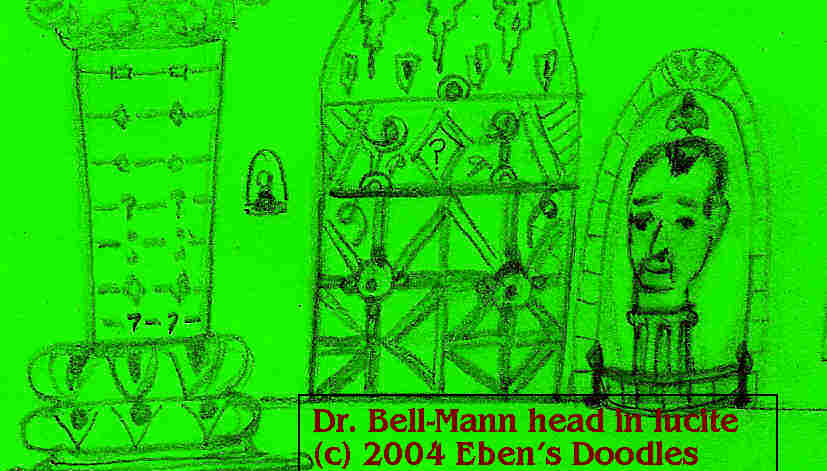
Dr. Lonny McLeish was acting project director while Dr. Chewn took a well-earned sabbatical in the south of France. Booming down from his six-foot-seven inch height, the big man in a white hat that made him even taller kept things lively and on schedule with his army of scurrying crew cuts, plaid shirts, and white socks.
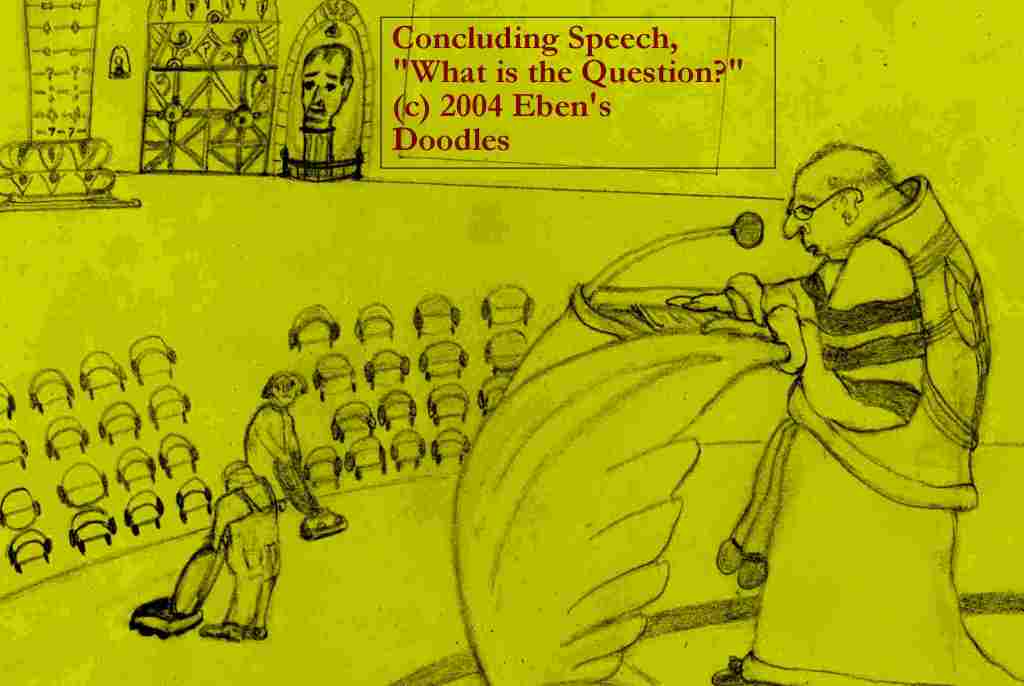
He paused for a moment and opened a book, a translation in large print, then peered over his spectacles at an audience that was no longer there.
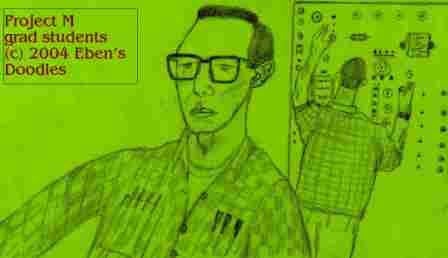
Just as they were tracking a new particle, a red-glowing object, it must have gotten out of the End Station and back into the copper tube somehow. The 40,000 miles of klystons--pumping power for the next firing--overloaded and a detonation of the system took out windows, doors, walls, roofs, patio hot tubs, garden kiosks, and TV reception as far as Berkeley. Fortunately for the SLAC personnel, they were well-shielded by the three-foot-thick concrete walls of the End Stations. And the campus was deserted. It being a holiday, nobody was hurt.
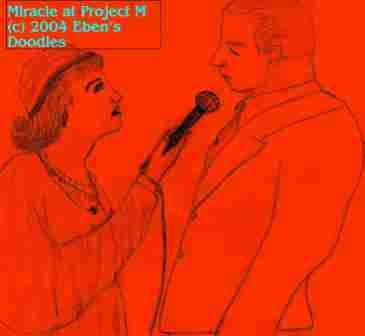
The news anchor, Judi Woodman, blinked.

C H R O N I C L E
S E V E N
A N N O
S T E L L A E
1 9 8 5

1 "Switched off?"
Like a many-legged starfish wrapping itself around an unsuspecting clam, the visitor was encircling an entire planet, slowly but surely. While it accomplished this, developments took place in the Sun that were, for the Solar System, even more ominous, tipping off Earth’s scientific community to an event it could not ignore.
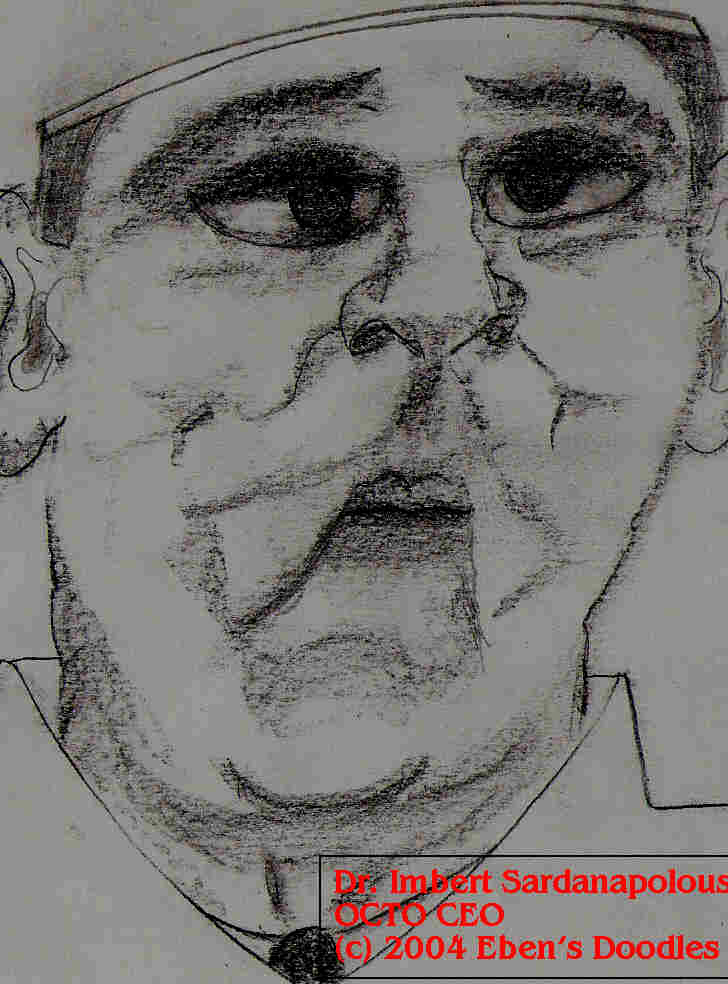
The huge man wrinkled his nose at the strong scent of the sesame that his diver, Zair, used to oil his body. Even his contamination-retardant booties were saturated and left oily smudges on the floor.
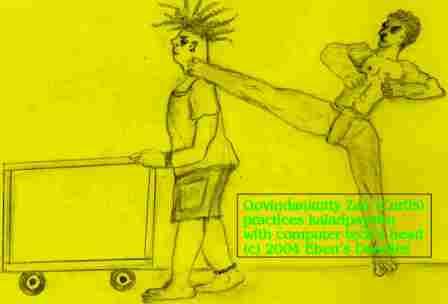
Catching a sense of movement near his head, the tech turned.
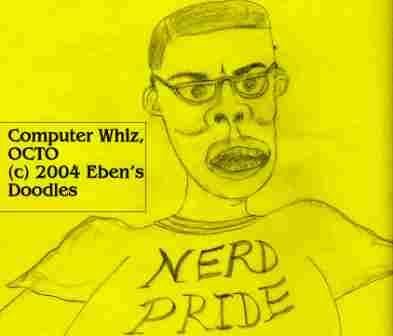
"You guys gotta be kidding! Don't you know you won't just be looking for another meal ticket, you'll be looking for a sun and a solar system?"

One glance and she could tell she was at the flagship facility of Sardanapolous's "Team OCTO"--a network of neutrino tanks he envisioned girdling the globe.
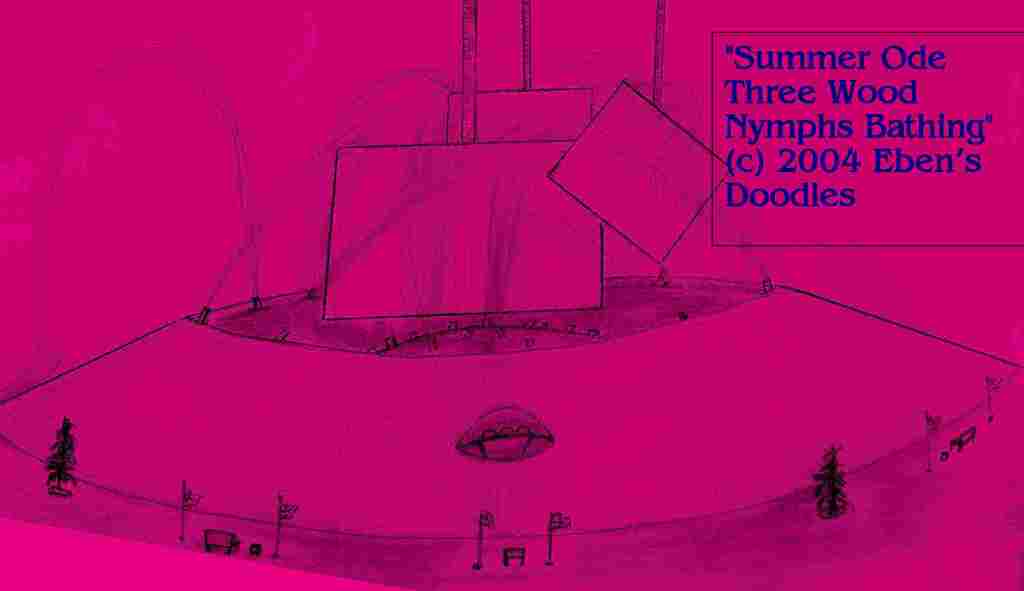
Ms. Cargill stopped abruptly, made her first report entry, then drove toward a geodesic dome housing OCTO's giftshop-reception-interpretive center.
SHAFT ENTRANCE
As soon as the elevator doors shut and she was on her way down, the guard was on the line.
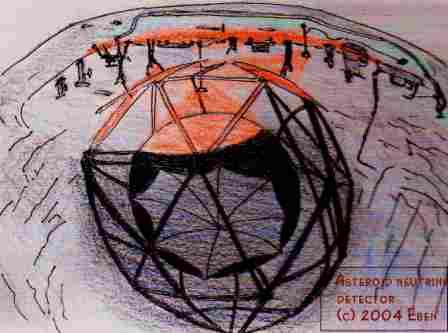
"It's certainly clear from this picture, Ms. Cargill, how far we've come in the technology of this science since those days," the CEO remarked, rather redundantly his visitor thought.
Without time to waste, the CEO immediately showed her some cavernous equipment and pump-water purification rooms. They would have passed by a smocking room with lockers and large cafeteria-exercise center complete with ball court, Jacuzzi, and employee video arcade, but Ms. Cargill took a look around anyway. She asked about and was shown accommodations for important guests.
NEUTRINO DETECTOR TANK
At the bottom of which was appended, scrawled with magic marker: RUBBER DUCKY OPTIONAL.
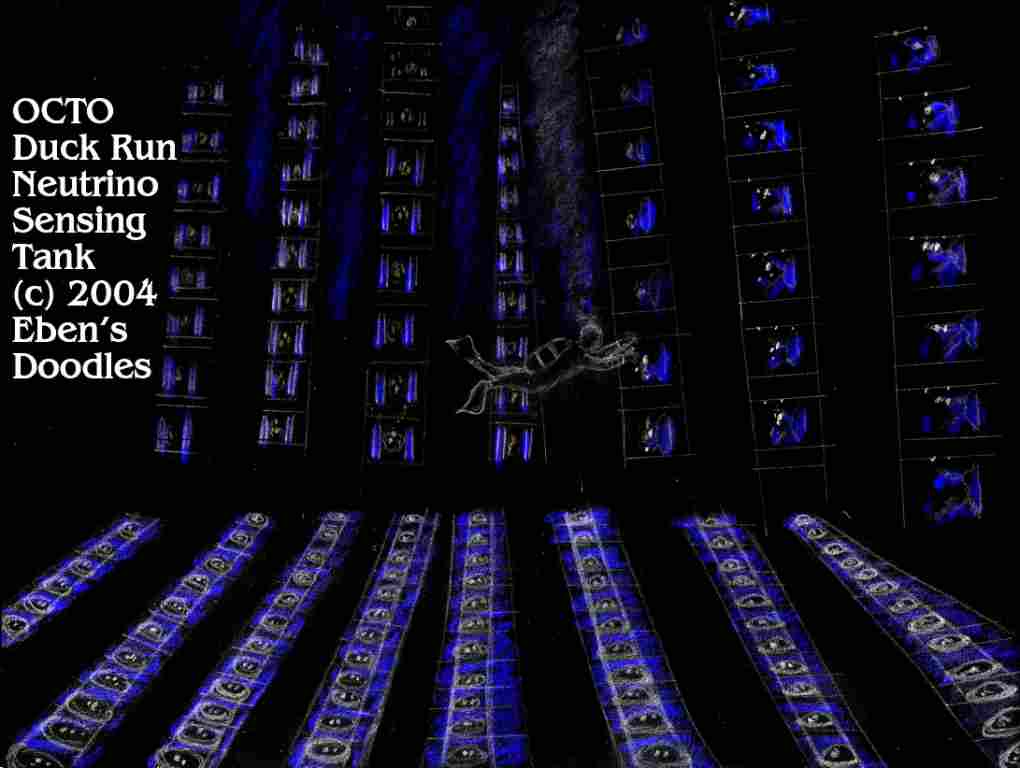
Dazzling with expensive, reflective surfaces like the inside of an immense jewel case, yet it was pitch dark where her halogen did not reach. Beyond the light was seemingly unlimited space she could only sense--a world, so it seemed to her, that only Zair could navigate with confidence.
A-M Guideline 1:
TAKE POSITIVE CONTROL OF ANGER. DIVIDE YOUR CRISIS STRATEGY INTO THREE SUB-CATEGORIES OR SUB-GOALS (S-C/S-G’s). CONCENTRATE ANGER ON THE FIRST SPECIFIC, CLEARLY DIFFERENTIATED, IMMEDIATE GOAL-COORDINATE (FSCDIG-C). UTTERLY FORGET, FOR THE MOMENT, THE LONG-RANGE OBJECTIVE AND THE REMAINING TWO S-G’s.
Her immediate goal was easily identified, but the ultimate part--forgetting momentarily the fact she wanted desperately to get out of the shaft, was a bit of a hang-up, she found.
THE ACADEMIC COMMUNITY WAS SADDENED TODAY AS
A UNIVERSITY WOMAN CLIMBED FROM AN ELEVATOR AND
PLUNGED TO HER DEATH IN A PRESTIGIOUS UO
SCIENTIFIC RESEARCH SHAFT. INITIAL INVESTIGATION REVEALED
NO REASON FOR HER LEAVING THE ELEVATOR BUT A
SEVERE REACTION TO VERTIGO AND CLAUSTROPHOBIA
MAY HAVE, AUTHORITIES SAY, PRECIPITATED HER
FATAL ACTION. AND NOW TODAY'S WEATHER FORECAST WITH CHAUNCY ROSYCHUK!
Cargill was fifteen feet above the elevator when the other screeched to a half alongside.
Now she saw
DR. SARDINAPPALOOSA, WORLD RENOWNED OU RESEARCH
DIRECTOR OF THE OCTO NEUTRINO DETECTION TANK
LABORATORY CENTER, DUCK RUN, OHIO, PRAISED A RECENT
DIVING ACCIDENT VICTIM FOR OUTSTANDING SCIENTIFIC
CONTRIBUTIONS. A MEMORIAL SCULPTURE AND SCHOLARSHIP
HAVE BEEN ANNOUNCED....
That did it! She suddenly realized how much she wanted to live--and survive "Curtis" and his big, bad pal. It was on to A-M Guideline 2. It was good all the rules had been memorized and drilled into her subconscious, because she no longer had no time to think.
Time for Guideline 2 implementation, she knew.
SUSPEND, FOR THE MOMENT, RATIOCINATIVE PROCESS. ALLOW INSTINCTIVE ANGER ENERGIES (IAE’s) TO ACHIEVE PRE-IDENTIFIED INTERMEDIATE GOAL (P-IIG). WHEN ACHIEVED, IMMEDIATELY CONSOLIDATE POSITIVE GAINS OF TWO SUBSIDIARY
S-G’s.
And what was her 'intermediate goal? Simple: continue the climb in order to evade imminent capture by the CEO.
FOCUS ON A PRIMARY CAUSE OF YOUR PERSONAL CRISIS TO RE-ENERGIZE ANGER BASE IN ORDER TO ACHIEVE THE ULTIMATE OBJECTIVE. SECONDLY, DRAW ON ALL PAST ACCUMULATED POSITIVE CAPITAL (PAPC) OF ANGER MANAGEMENT TO ACHIEVE IT NOW!
What PAPC? she wondered. She felt stripped, gutted, reduced to hollow shell. There was nothing left of Virginia Cargill that could possibly save her, she knew. She was finished!
The CEO had won! How he would gloat, the old ghoul, as he caught up and sent her hurtling downwards to her doom at the bottom of the shaft!
August 4. Catching wind of the series of "inconclusive" solar neutrino tests, Smithsonian Magazine sent the best qualified man they had to look into the affair, their roving science editor.
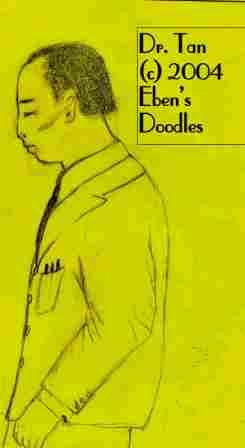
"Negative," snapped the CEO, who was still loyal to OU, even if a very dark cloud had fallen on the University because of OCTO.
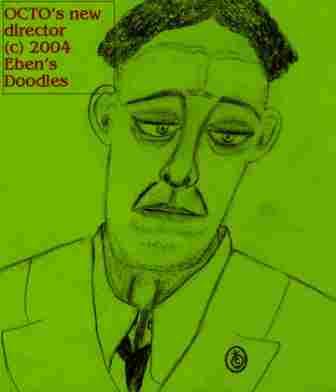
The CEO, as Dr. Tan waited inscrutably, finally broke down. He buried his face behind trembling fingers.
As for the matter of the foreign student diver's drowning, it was not of scientific interest, so he had left it out. The courts, when it came to that, would handle it.
"--the University of Ohio-Catherine T. O'Culligan Foundation Neutrino Detector Tank failed to register a reading of a single neutrino passing from the sun through the Earth.
As soon as the article appeared in the magazine many other people were spilling cups of coffee.

2 Epitaph for a Lost Ship
The ship where, in a sense, the siege had started, would not lie in its grave forever without
visitors. In the years after the disaster the doomed White Star liner cast the ancient ARGO in the shade and became the world’s most famous
ship, as a thousand books and a number of major motion pictures were spun out of the tragedy. Like a
giant magnet the site drew researchers from all over, all seeking answers to questions that would not be
silenced by the official reports. But first they had to find the ship itself--a very difficult proposition in
the trackless, storm-tossed North Atlantic three hundred miles off the coast of Newfoundland.
September 1. American scientists and explorers in a deep-sea titanium-hulled submersible probed the Atlantic depths, searching for a particular sunken liner.
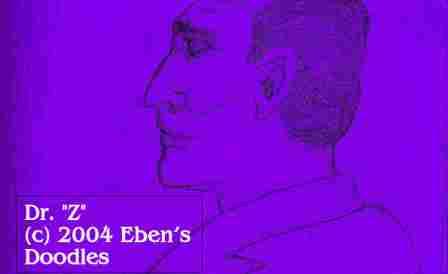
He was looking at a close-up shot on a screen connected to a CCD camera on the robot. A highball glass had just appeared, standing incredibly upright, a short distance from the bar. Lettering could be seen etched on the commemorative glass.
R.M.S. TITANIC
Everyone began cheering, slapping each other on the back--it was bedlam in the submersible for several minutes. When they calmed down and got back to the business at hand, they looked for the fatal 300 foot gash the iceberg was supposed to have slashed along the side of the ship.
Perhaps, he knew what he was talking about. Harking from a tiny village port on the Gulf of Mexico, the Rhodes scholar came from a long line of Blue Marlin fishermen. Their tombstones indicated an average life expectancy of about twenty four. All perished from Rapture of the Deep. The result of nitrogen narcosis? No, too much beauty and awe.

C H R O N I C L E
E I G H T
A N N O
S T E L L A E
1 9 8 6

1 "Roll Program." (Challenger)
If Dr. Zapatepac was correct and the Sea (including disasters at sea) is not necessarily the sum
of its parts, neither is a successful Space Shuttle program. That is the case particularly when an utter
unknown has its wrench in the gearbox.
After three postponements starting December 23, families of the astronauts, friends, and all other spectators who had rushed to the bleachers a few miles off from the Kennedy Space Center shuttle launch pad had to wonder if the latest date, January 26, was any firmer than the others.
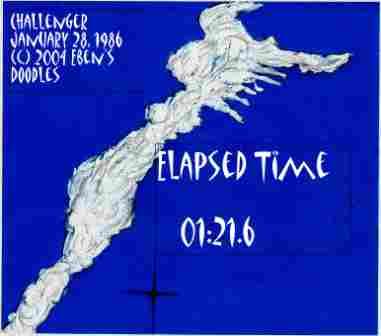

2 STS 51-L Sequence of Major Events
Mission
Time
Page 1 of 3
(Gmt, in hr: min: sec)
Event
Source
___________________________________________________________________________
16:37:53.444 ME - 3 Ignition
ET --External Tank
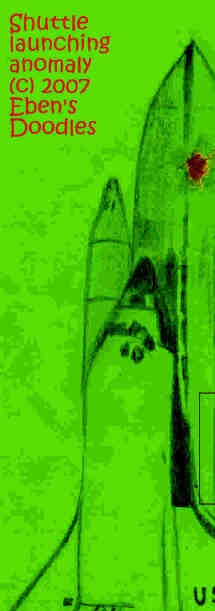

3 Dear Mr. President:
On behalf of the Commission, it is my privilege to present the report of the Presidential Commission on the Space Shuttle Challenger Accident.
Sincerely,
The President of the United States

Retro Star Directory and Linking Page

(c) 2008, Butterfly Productions, All Rights Reserved

